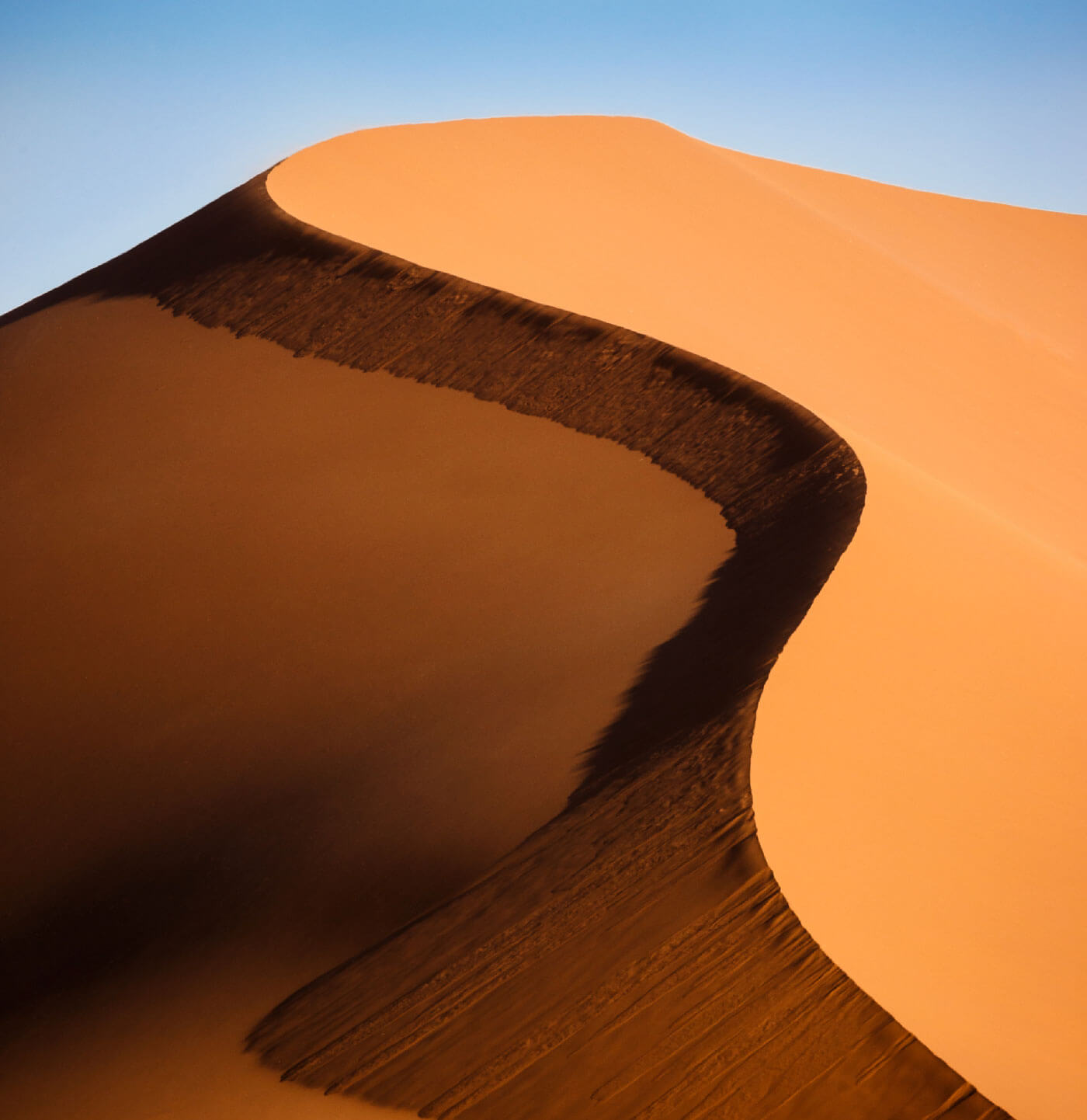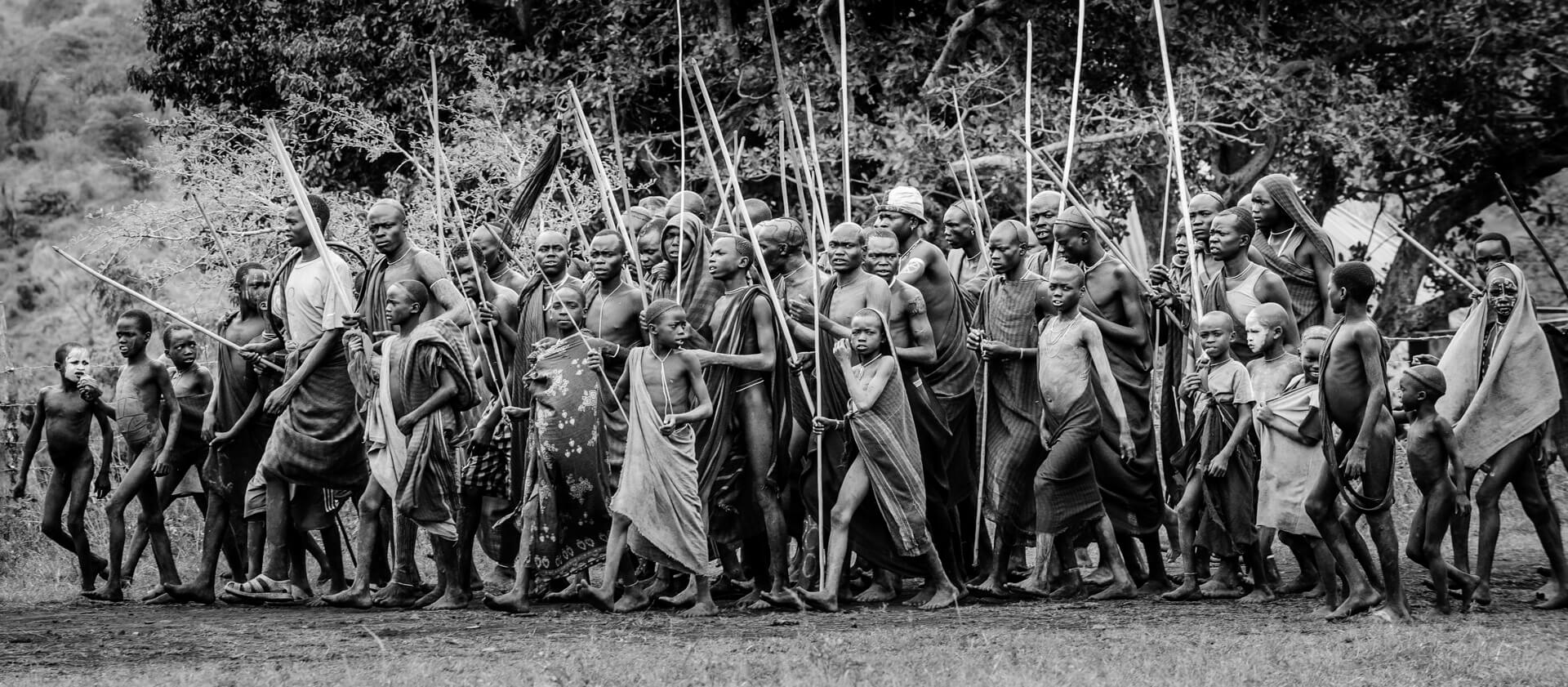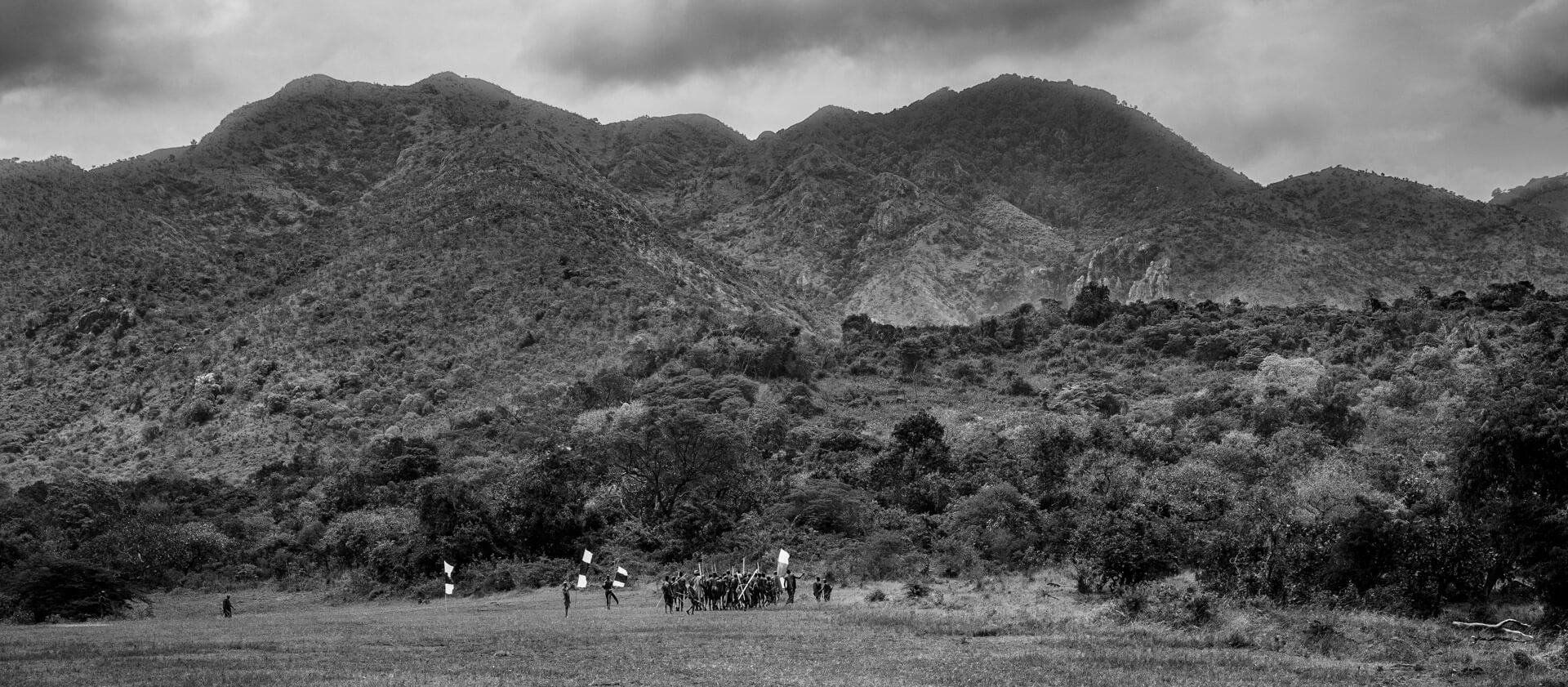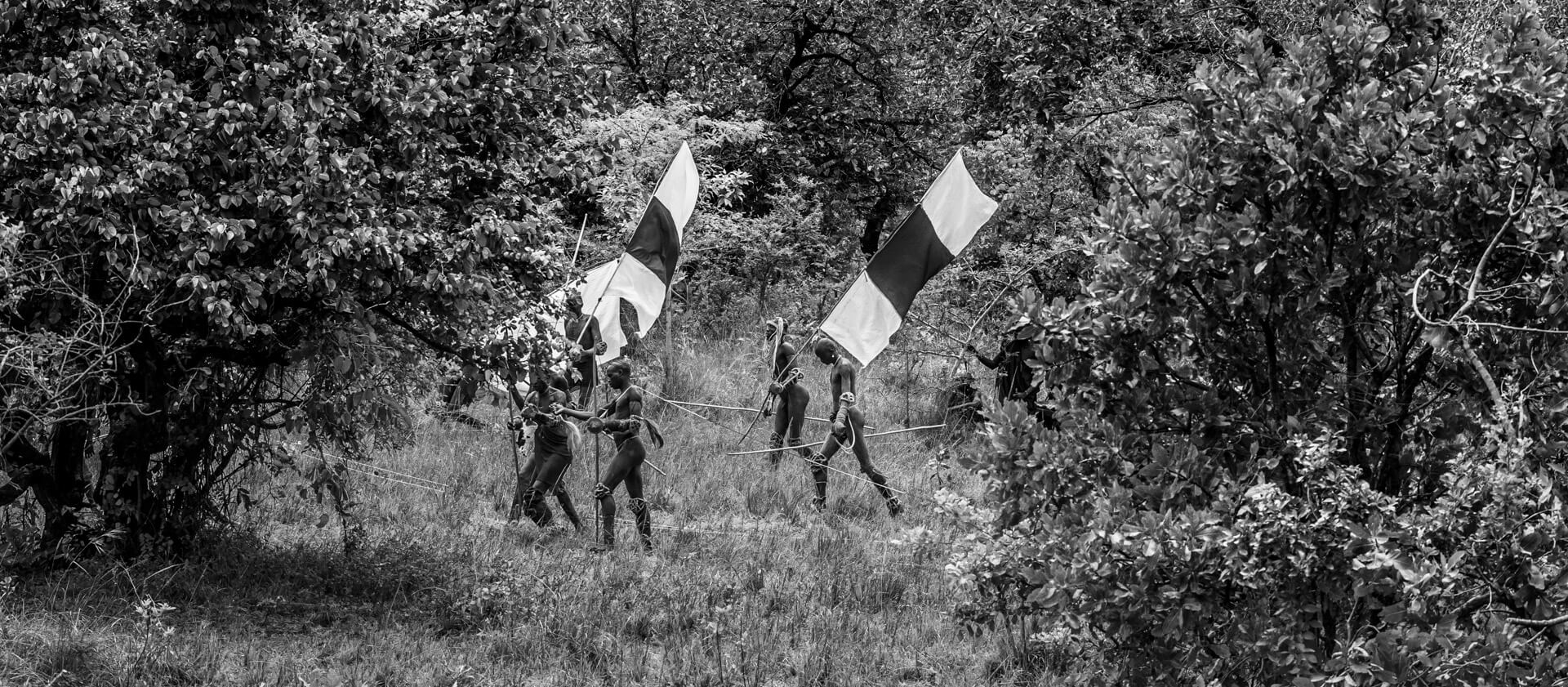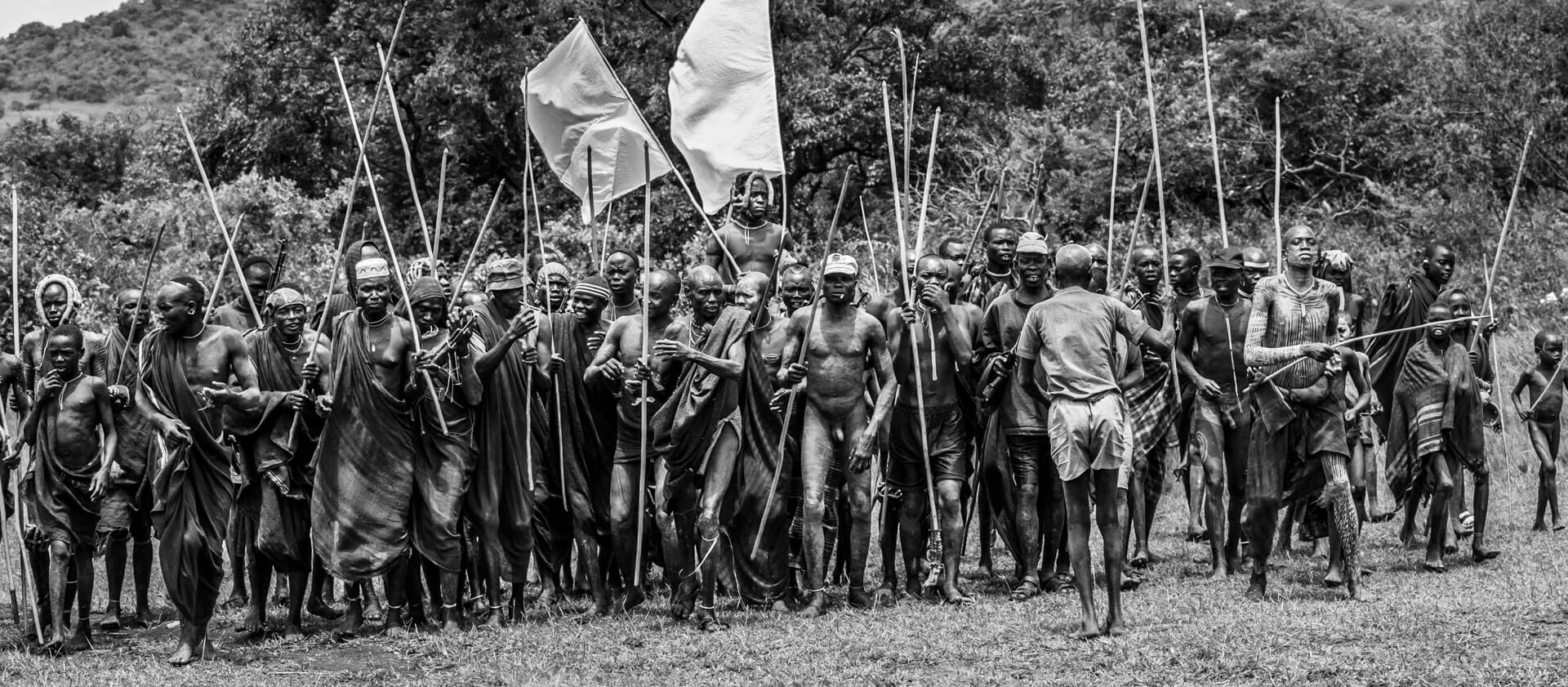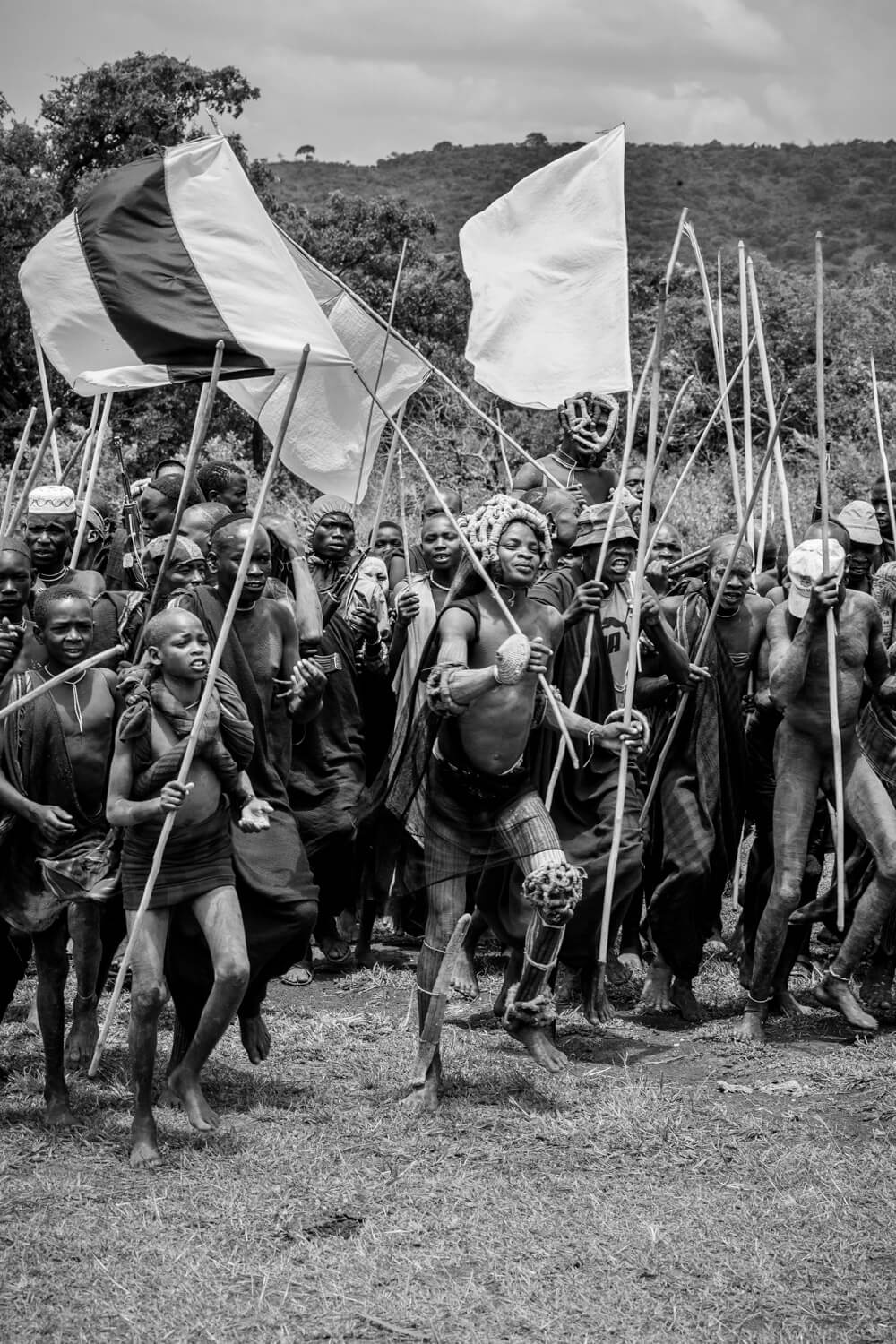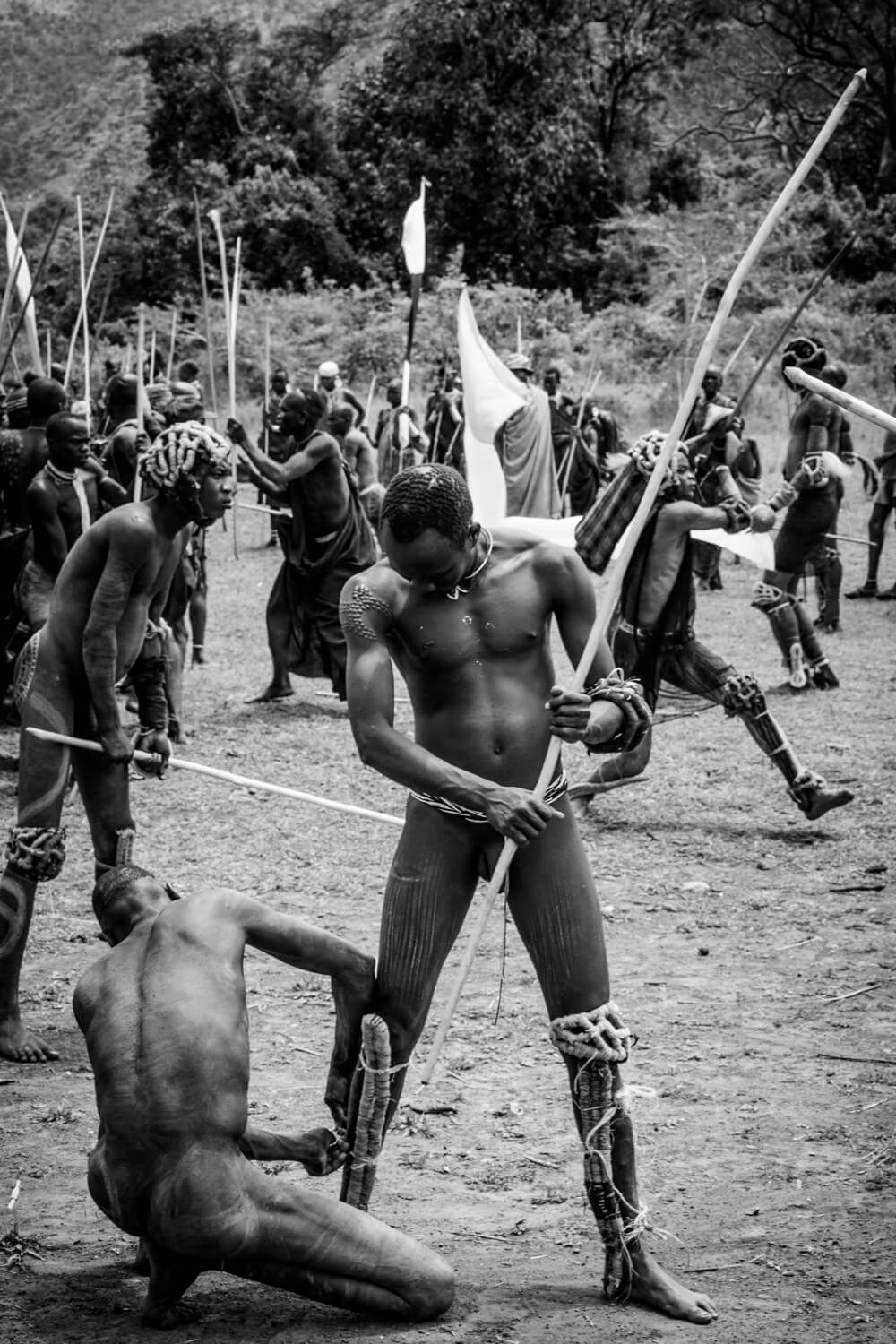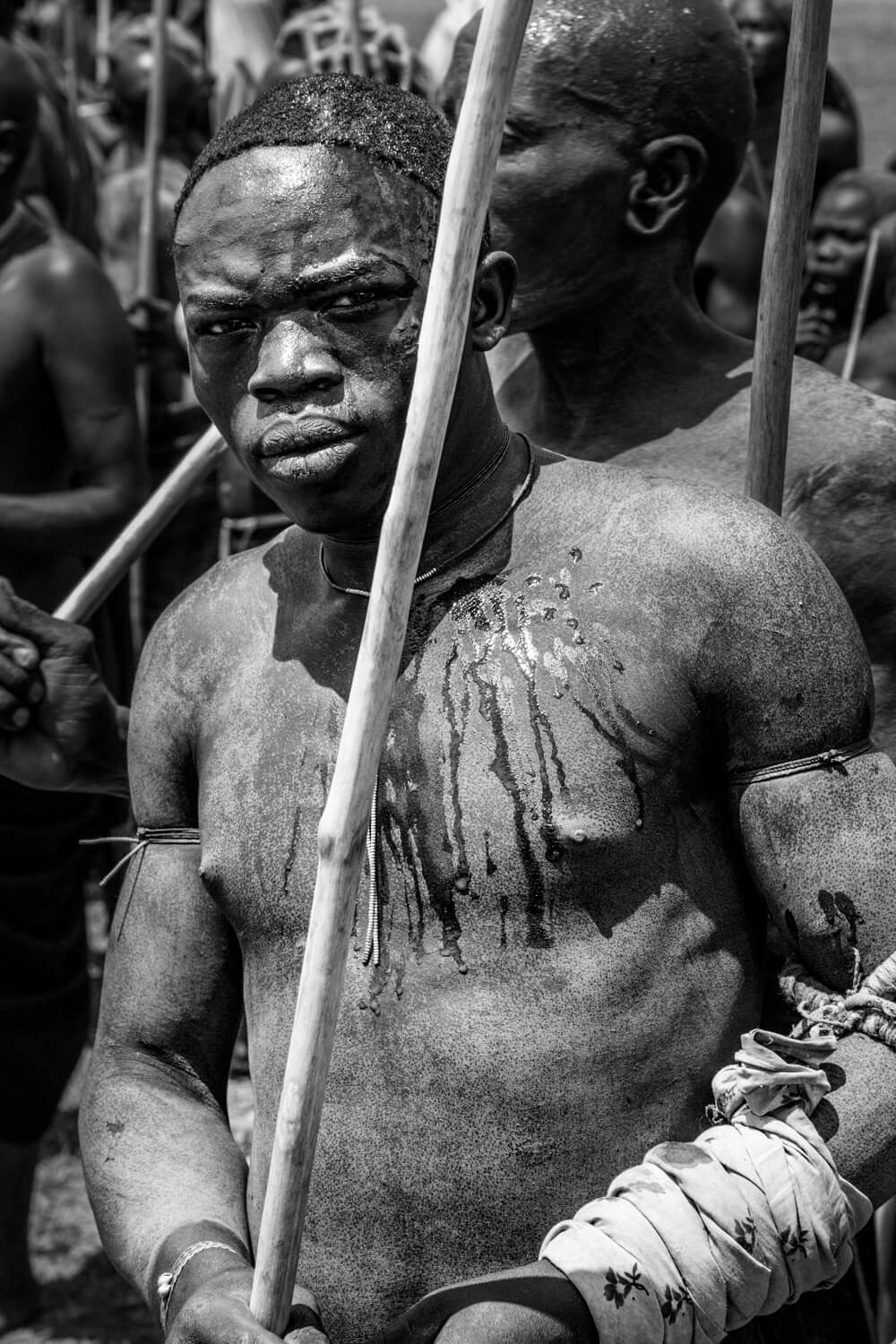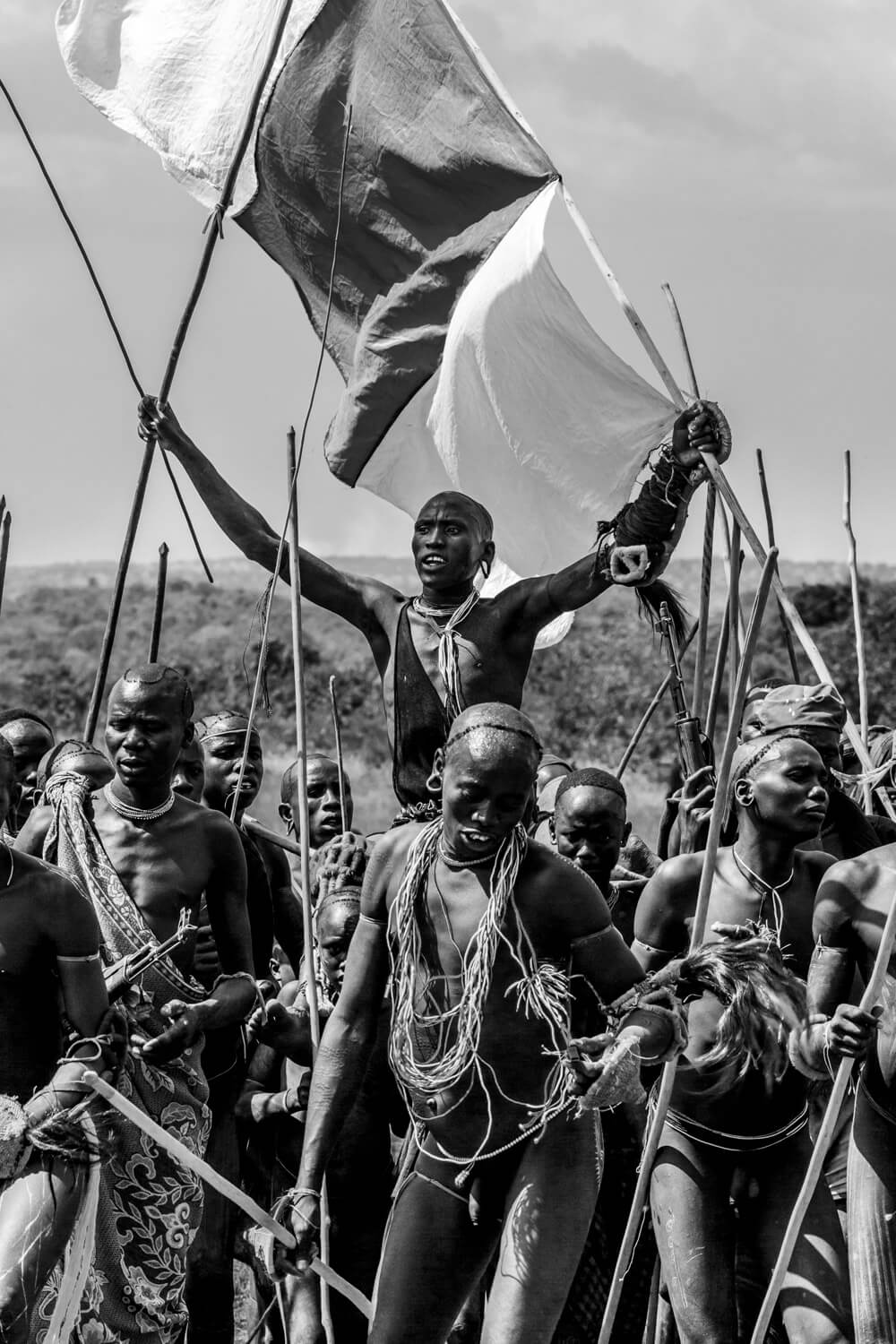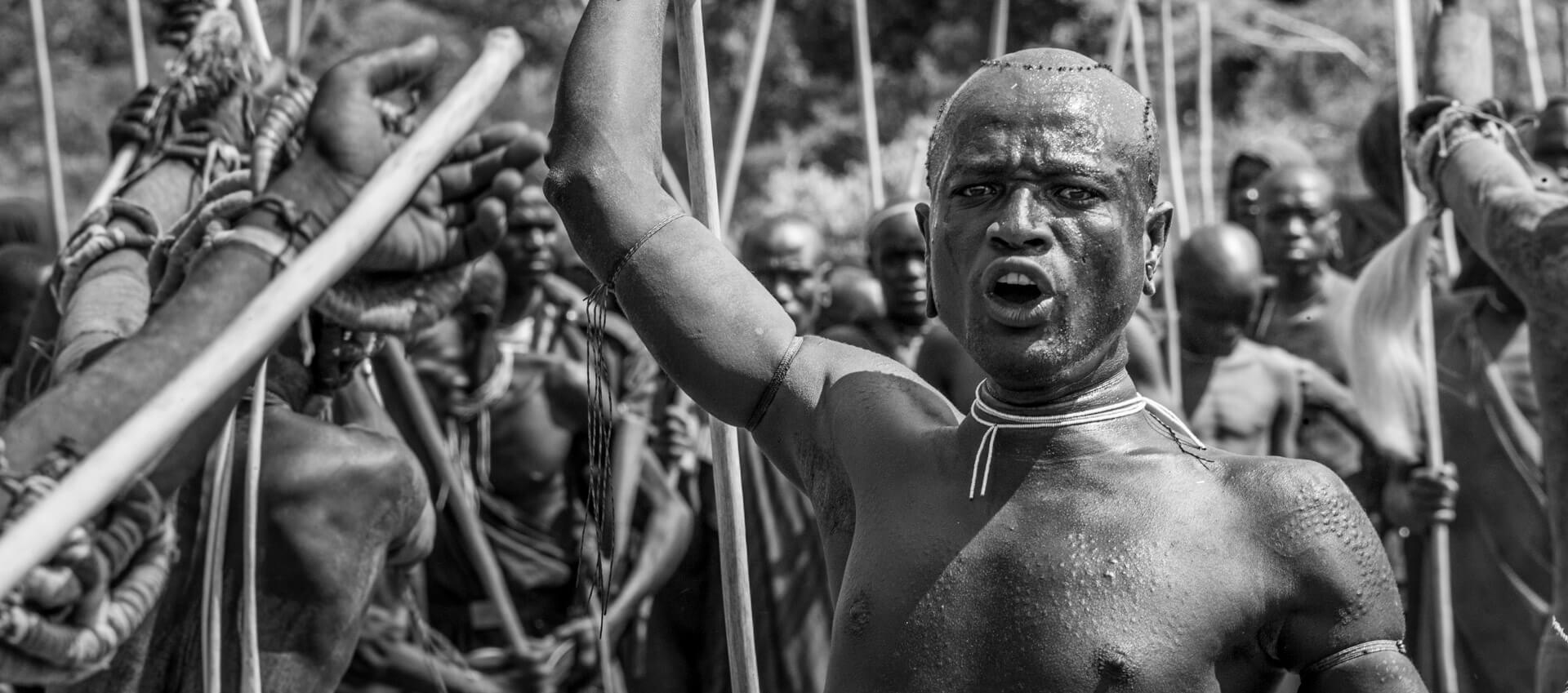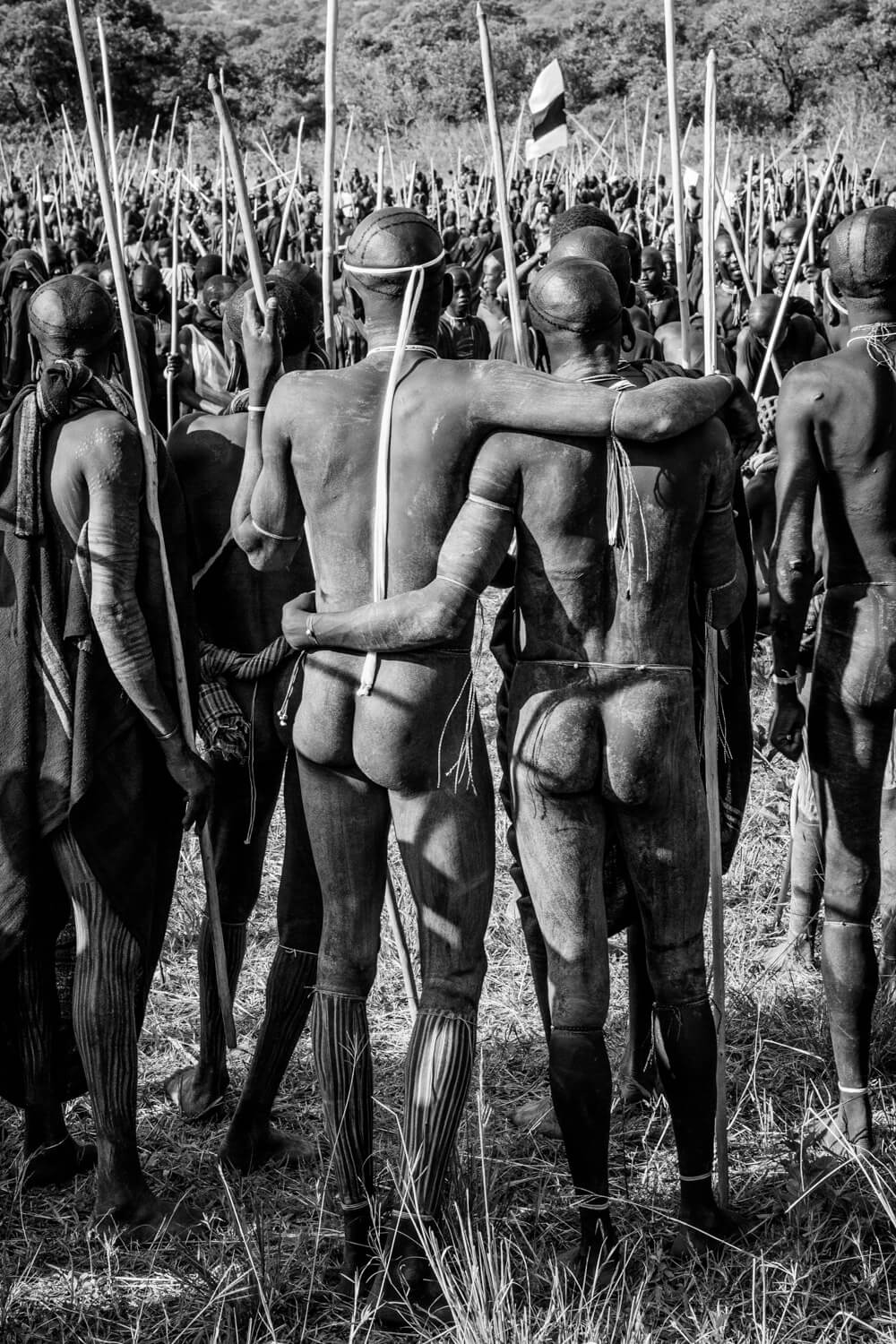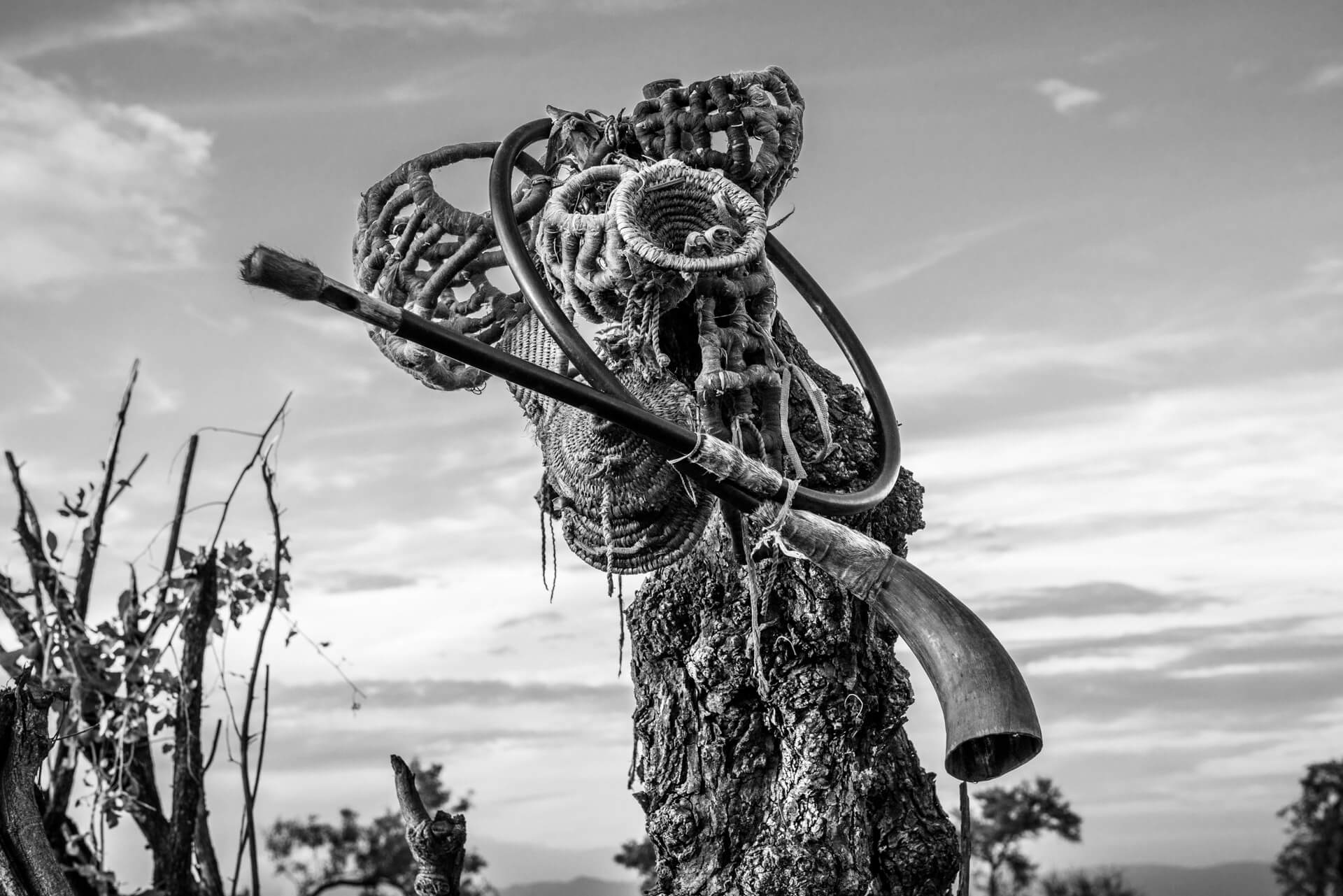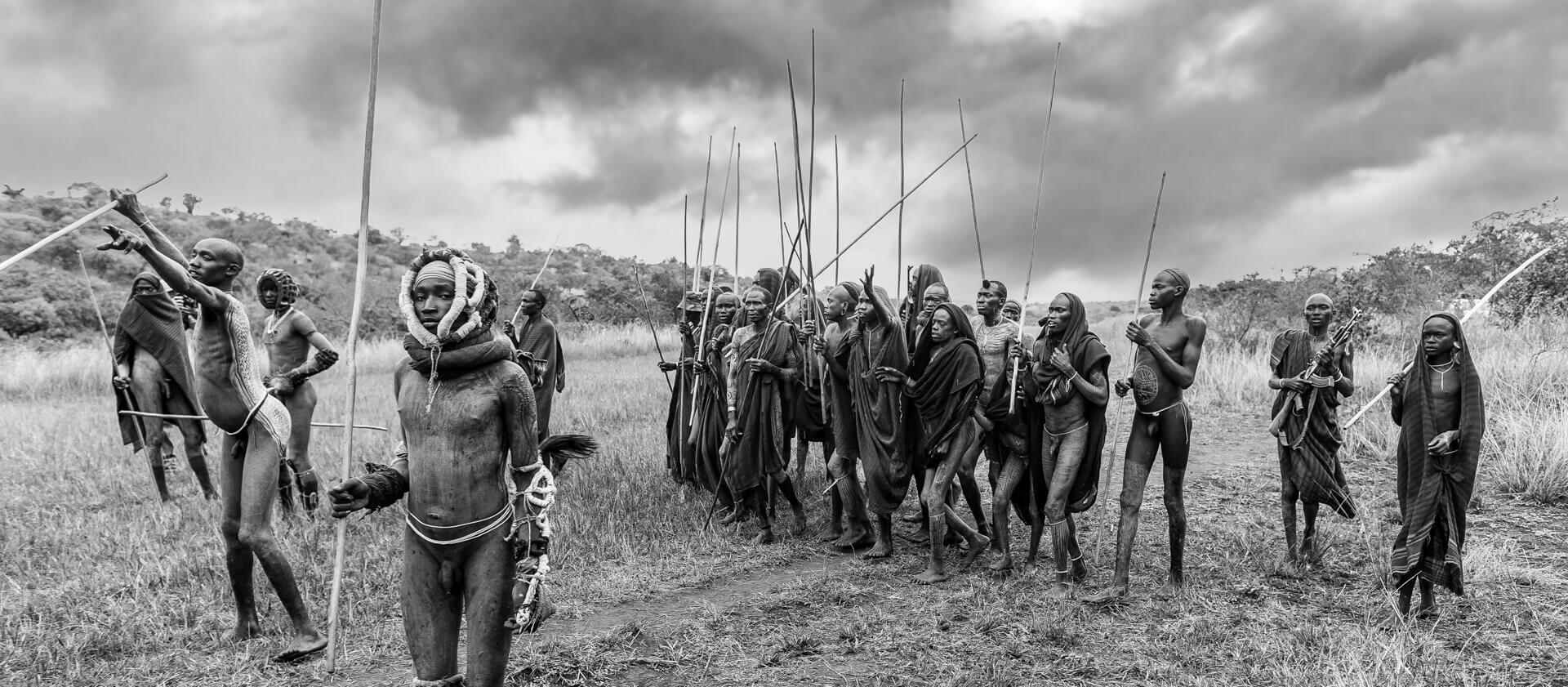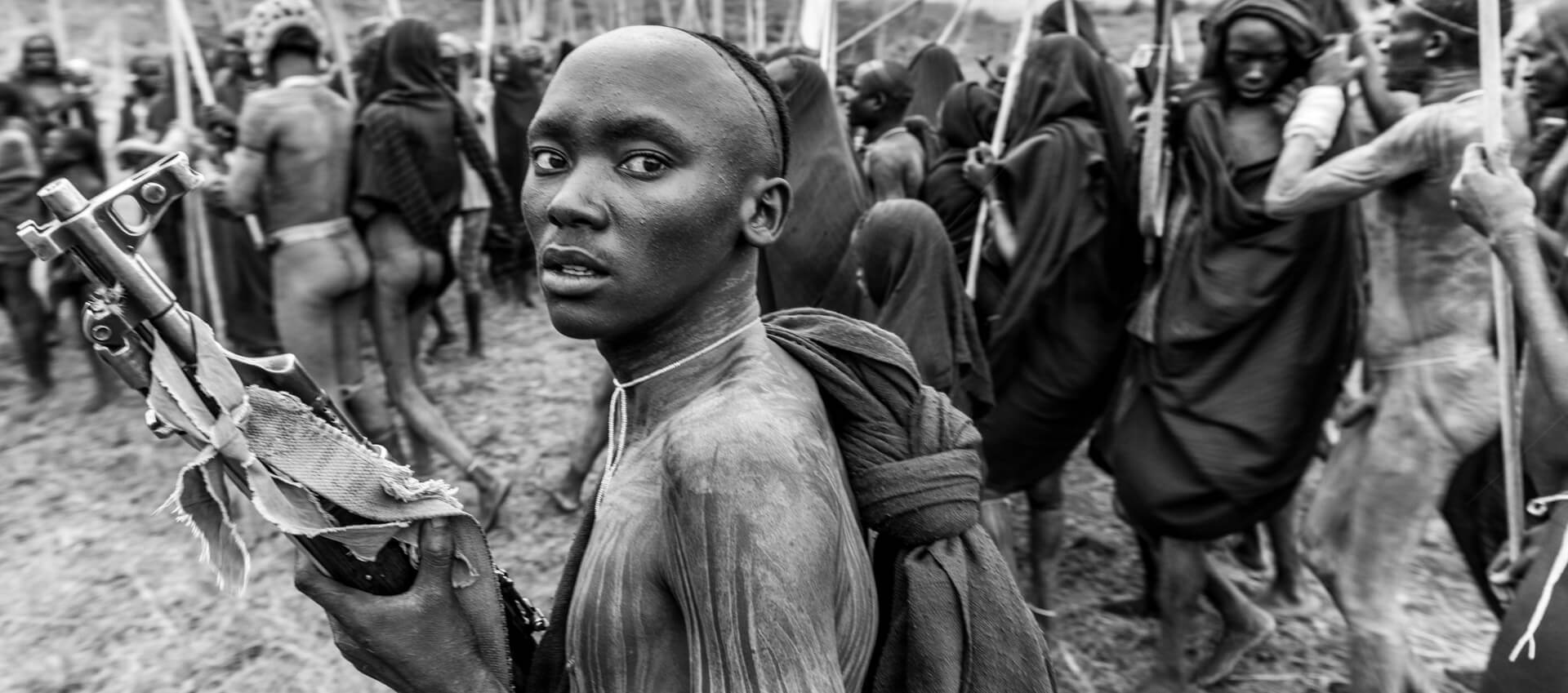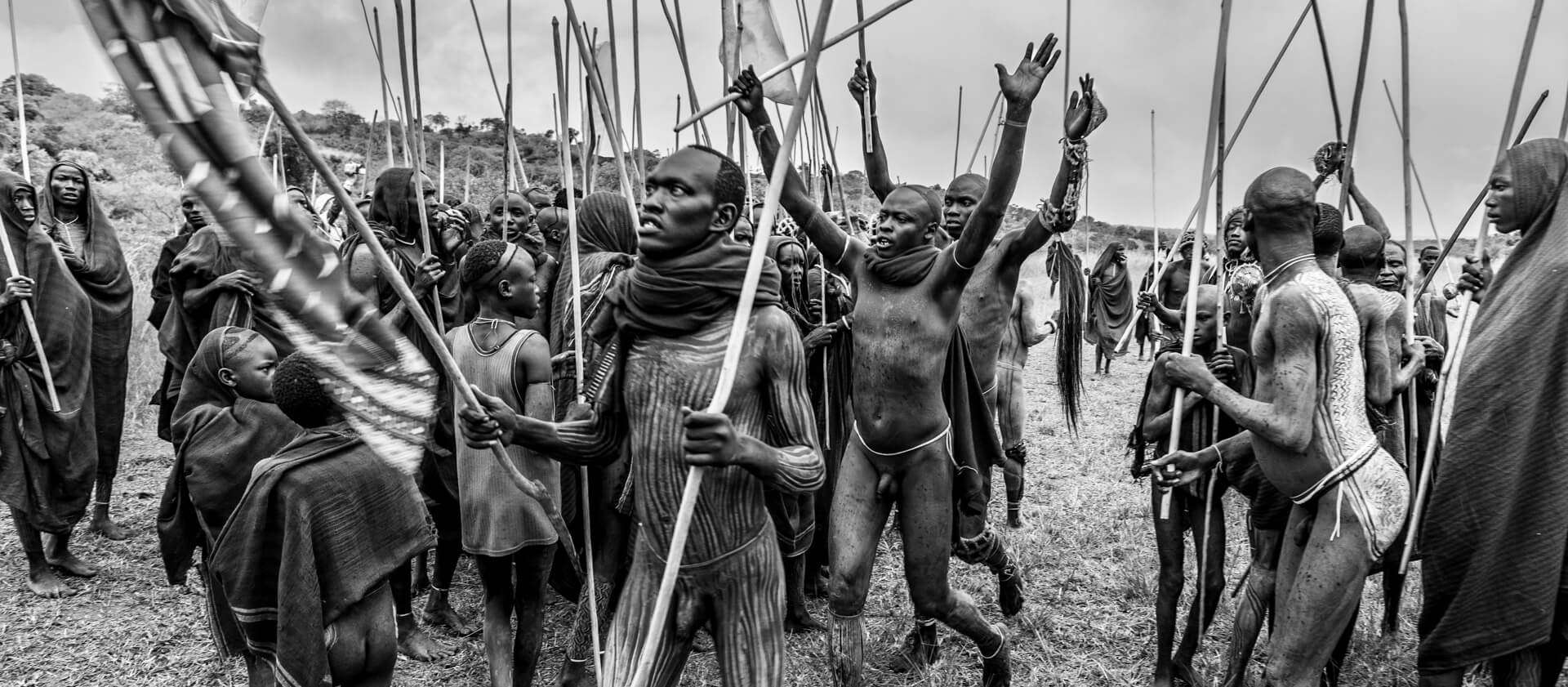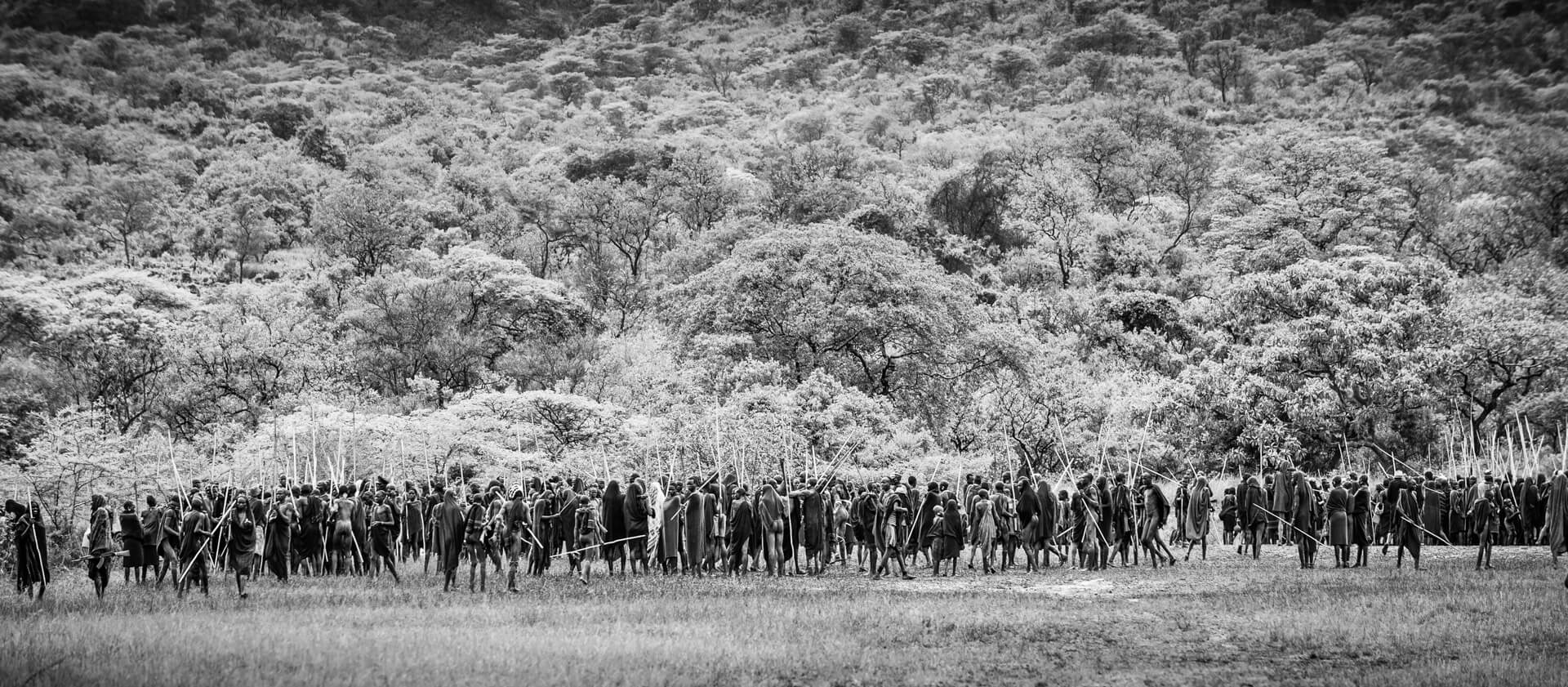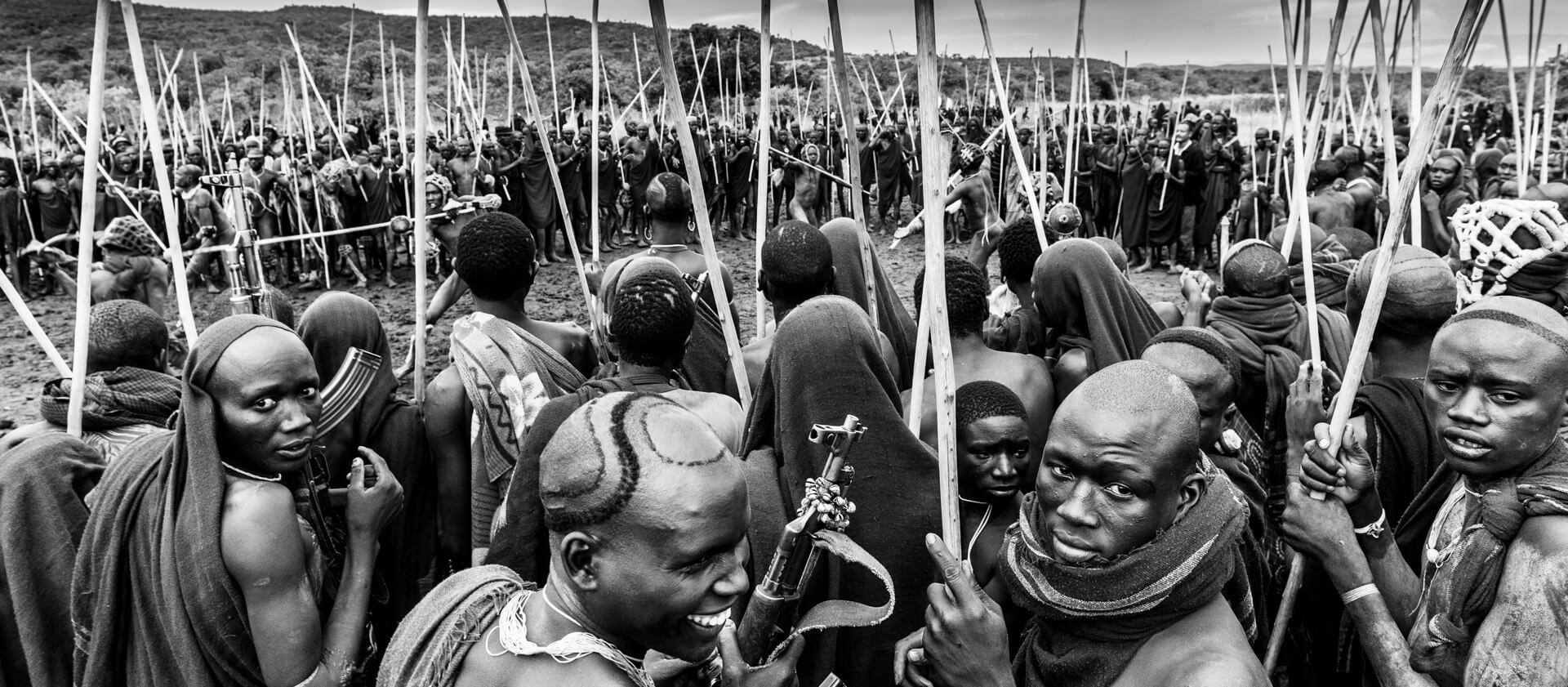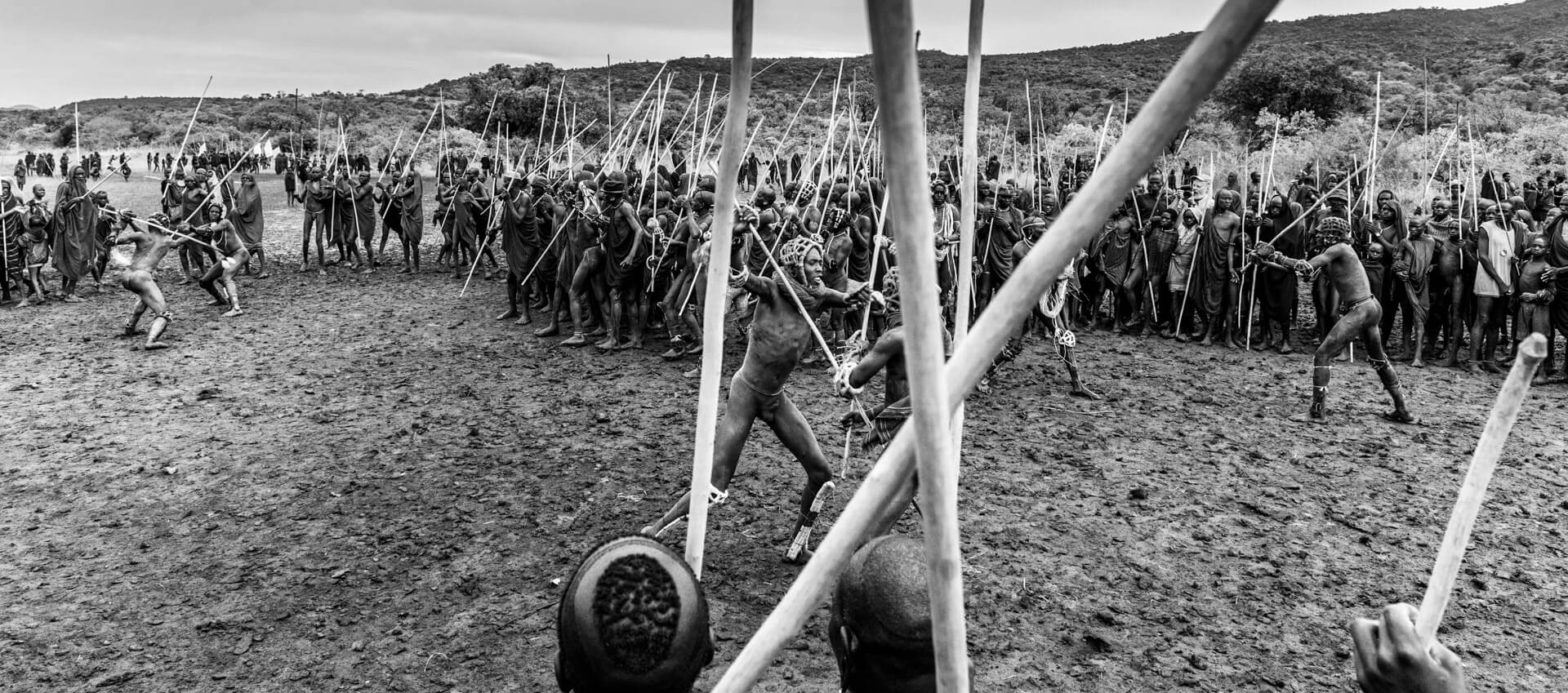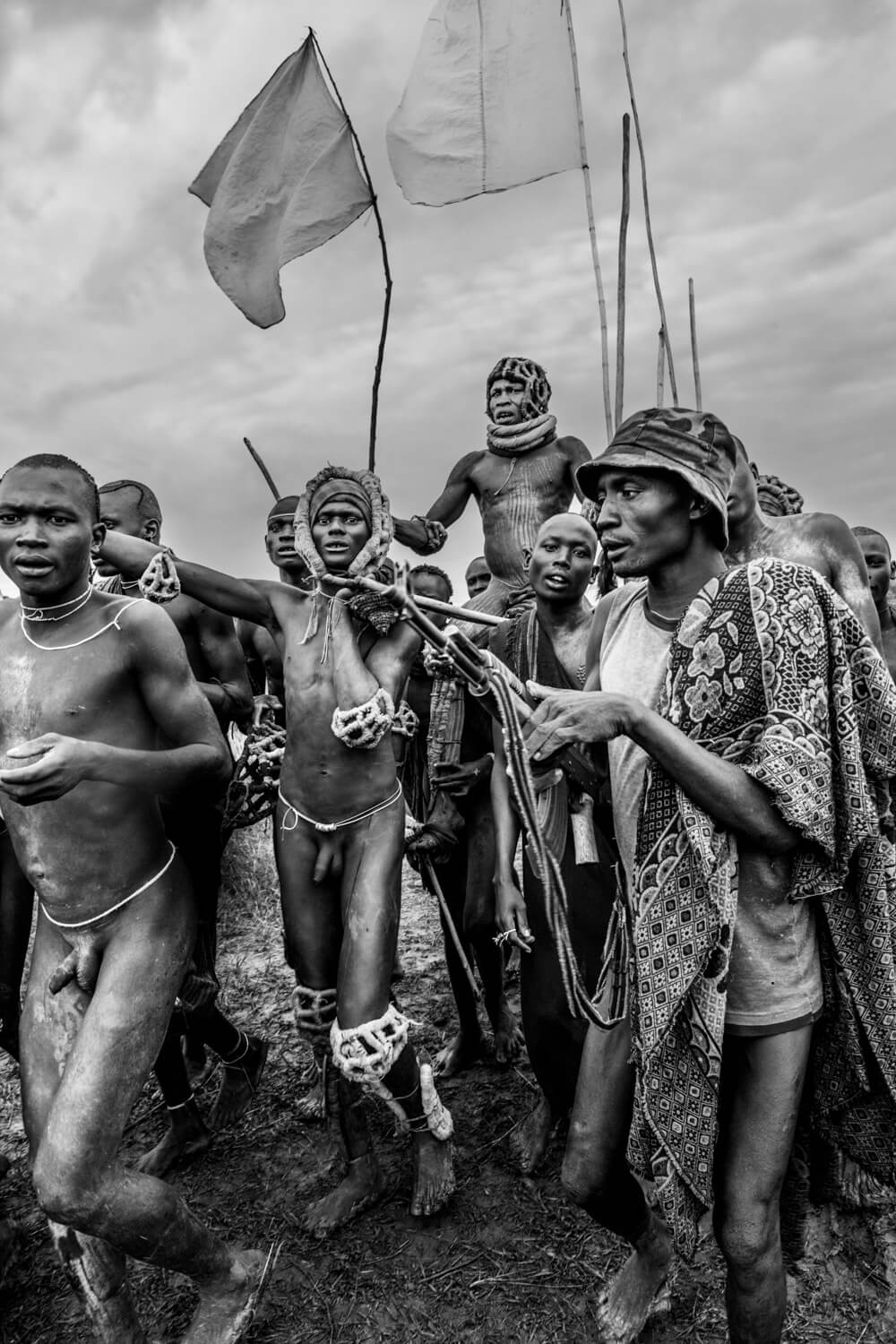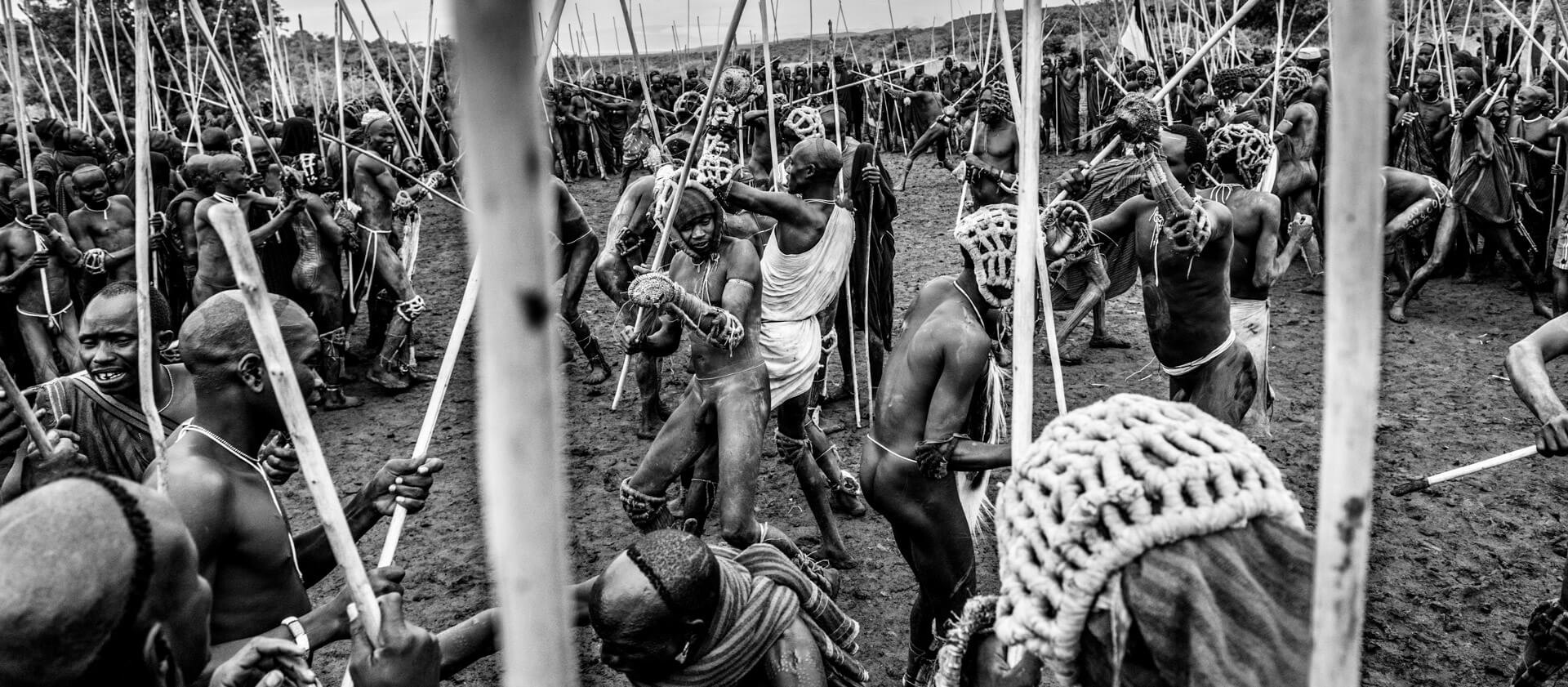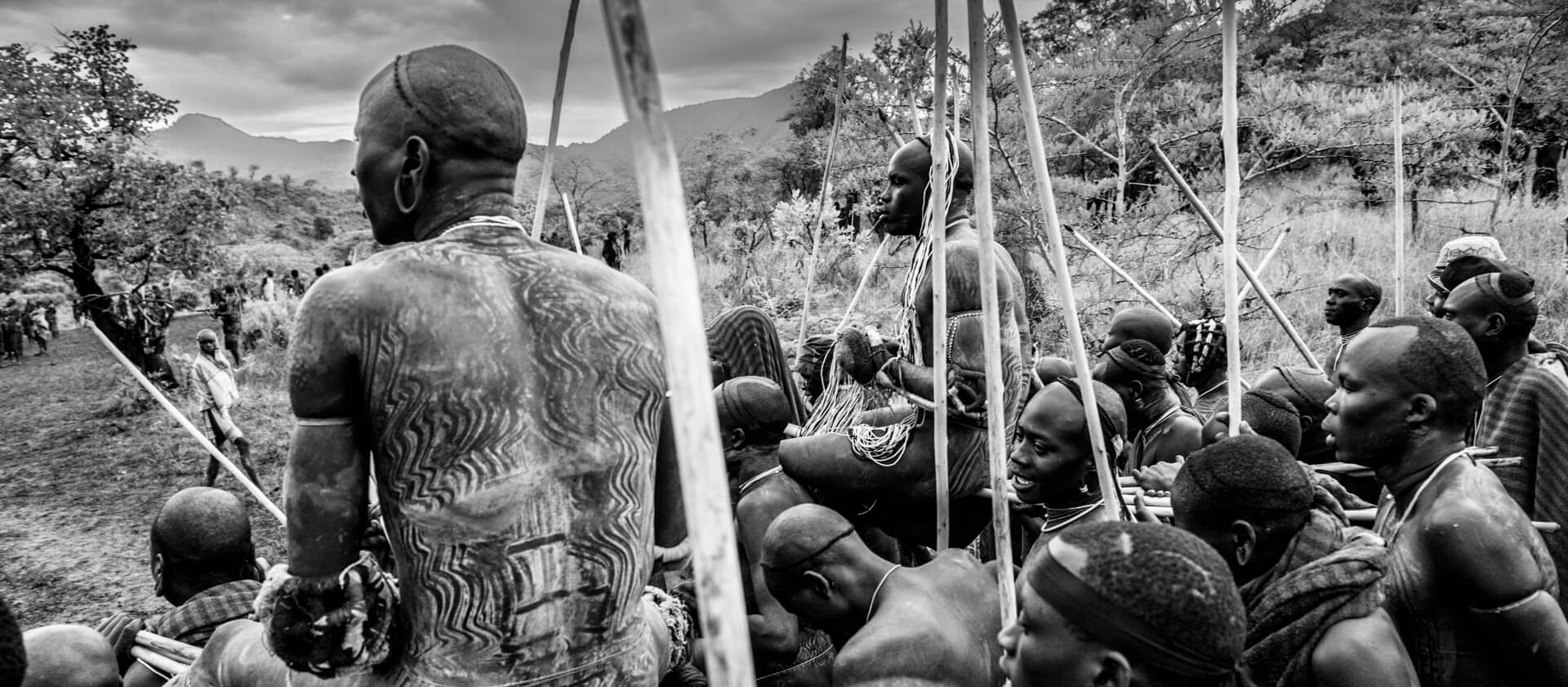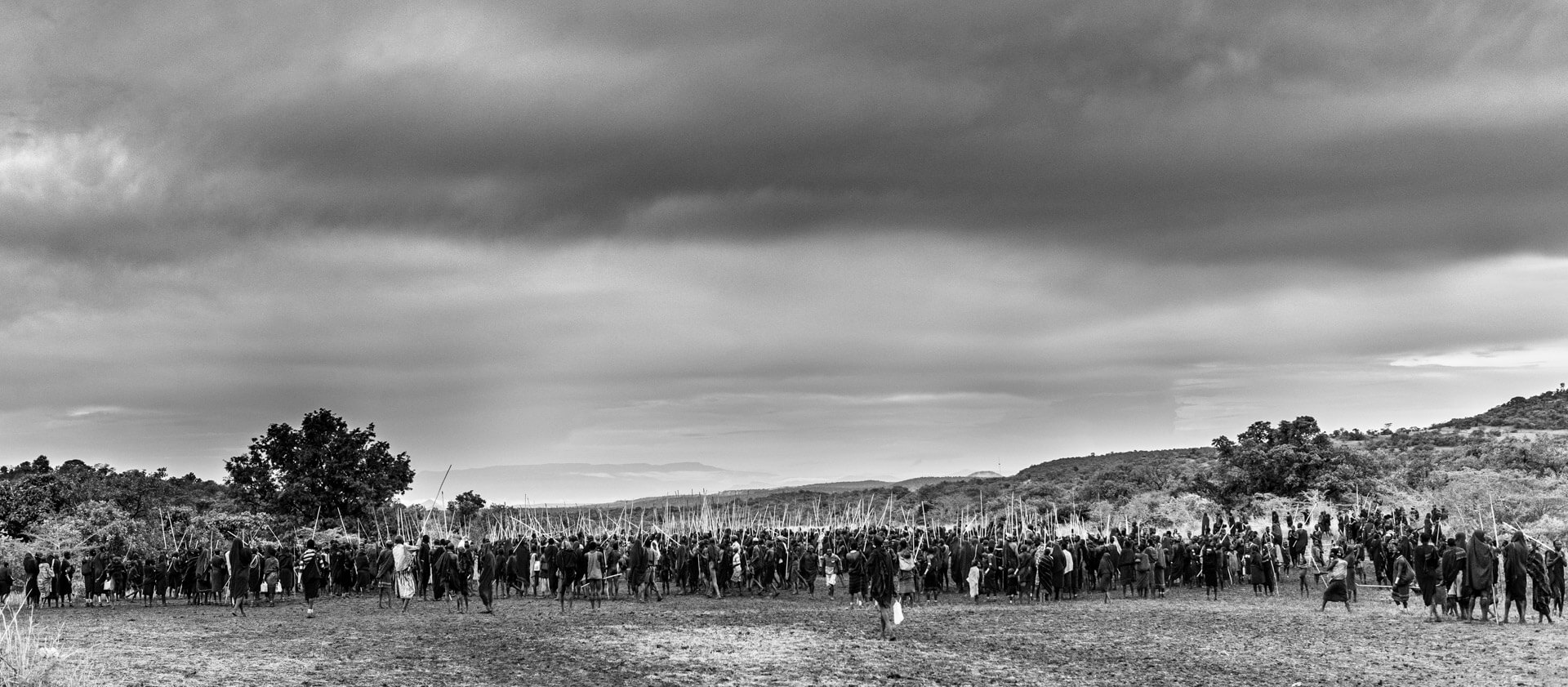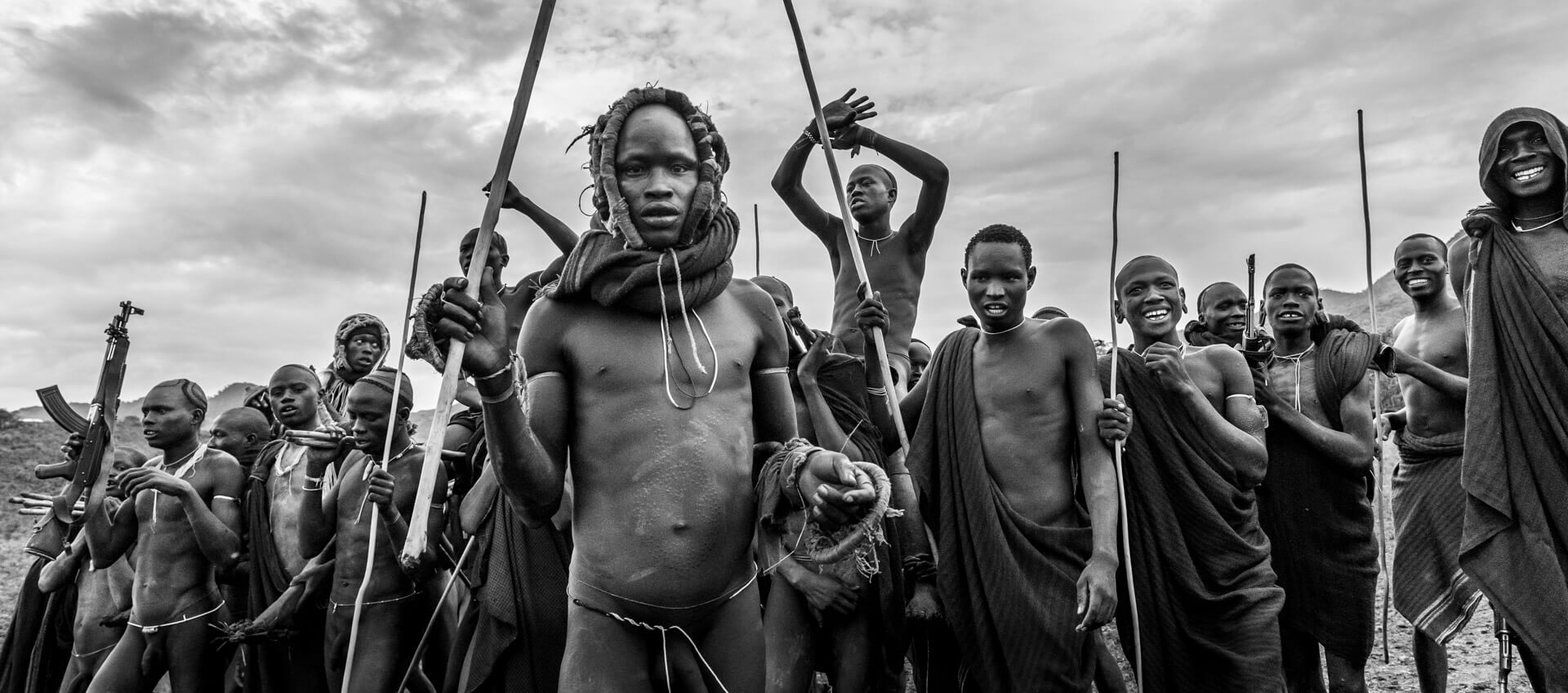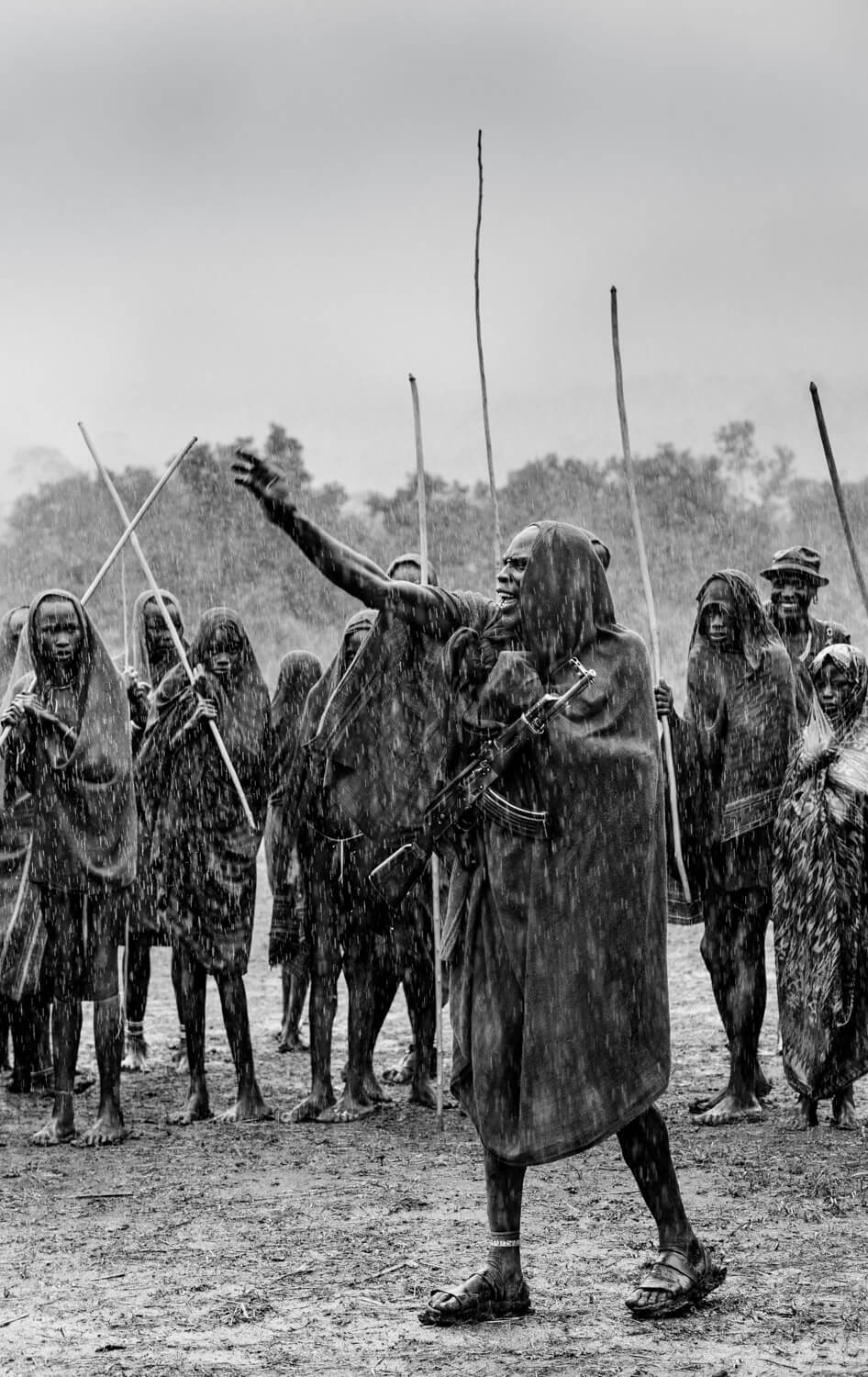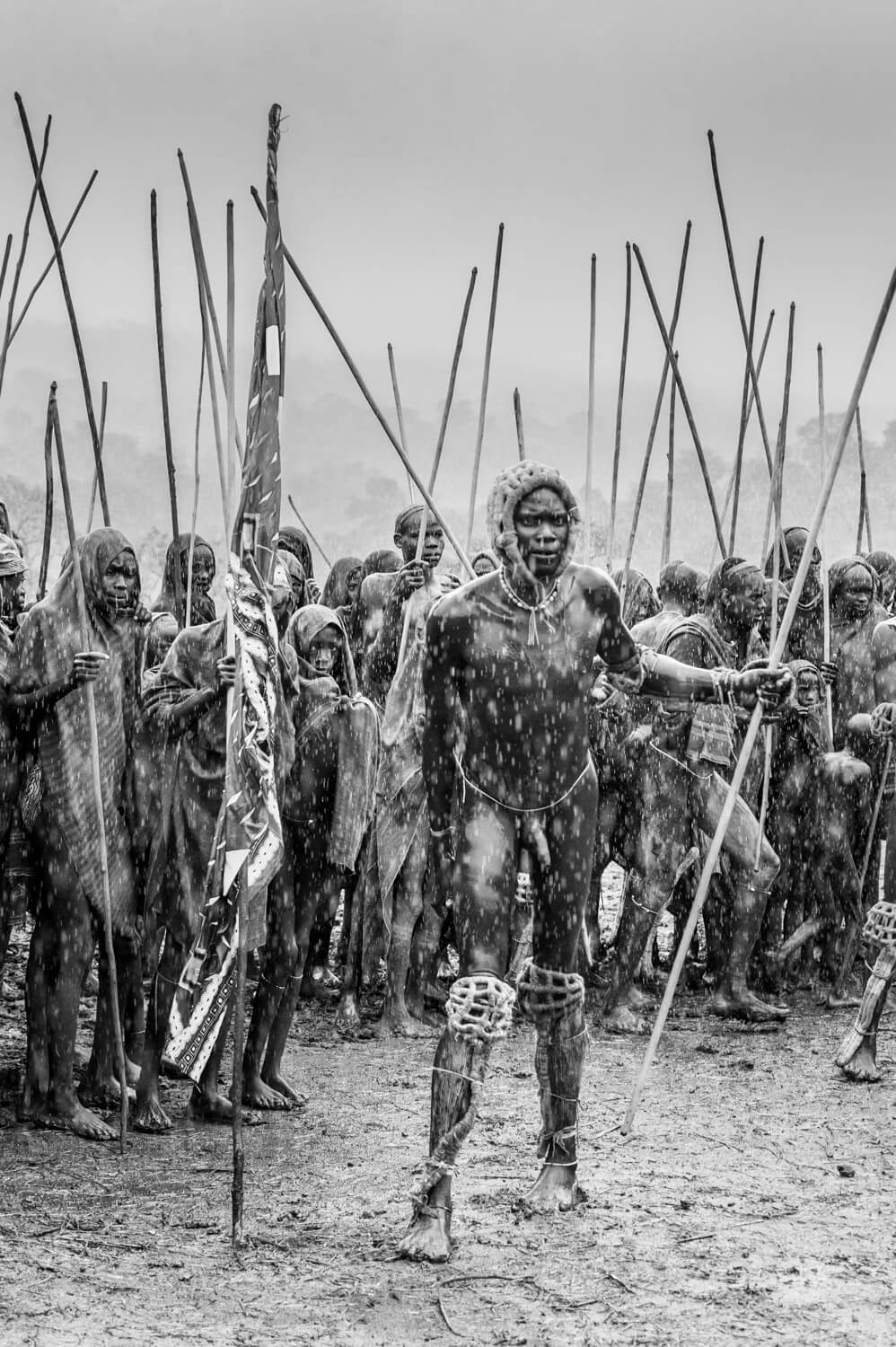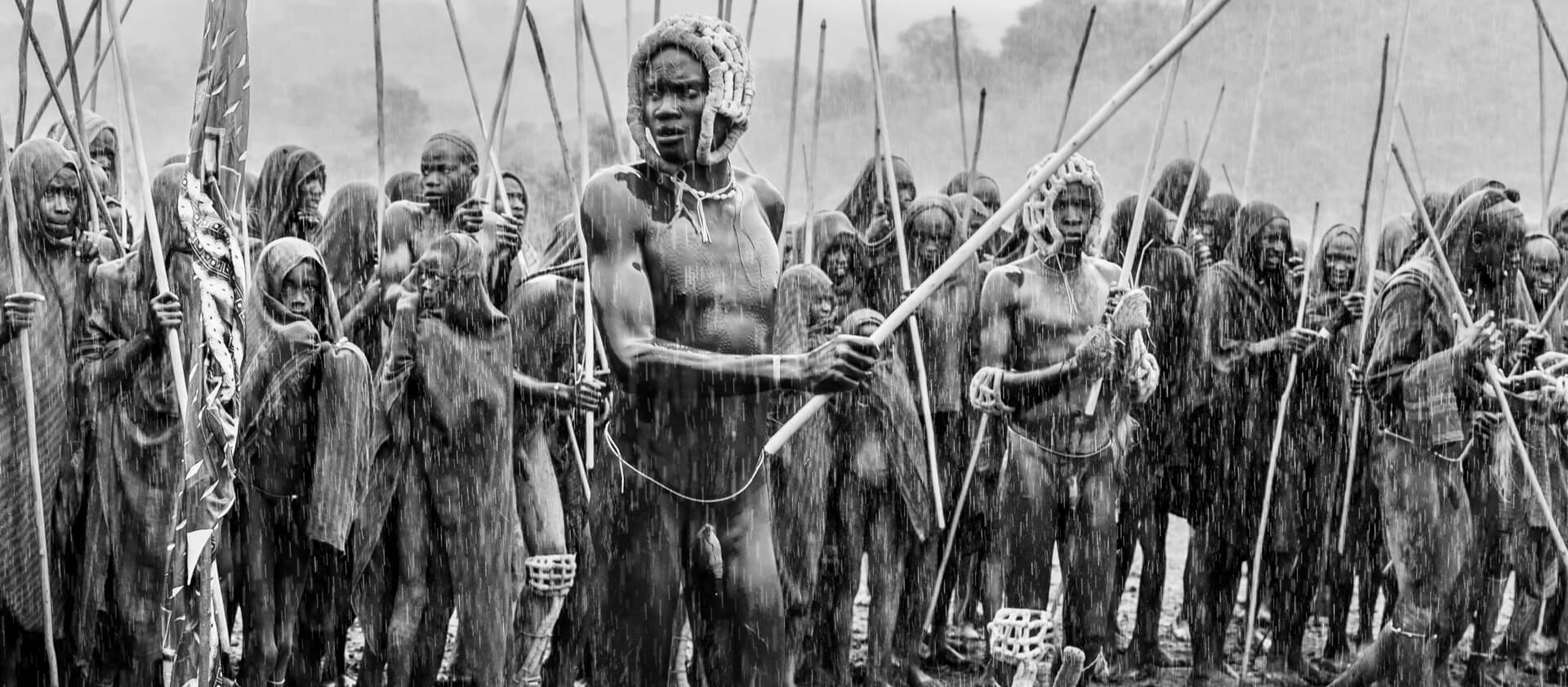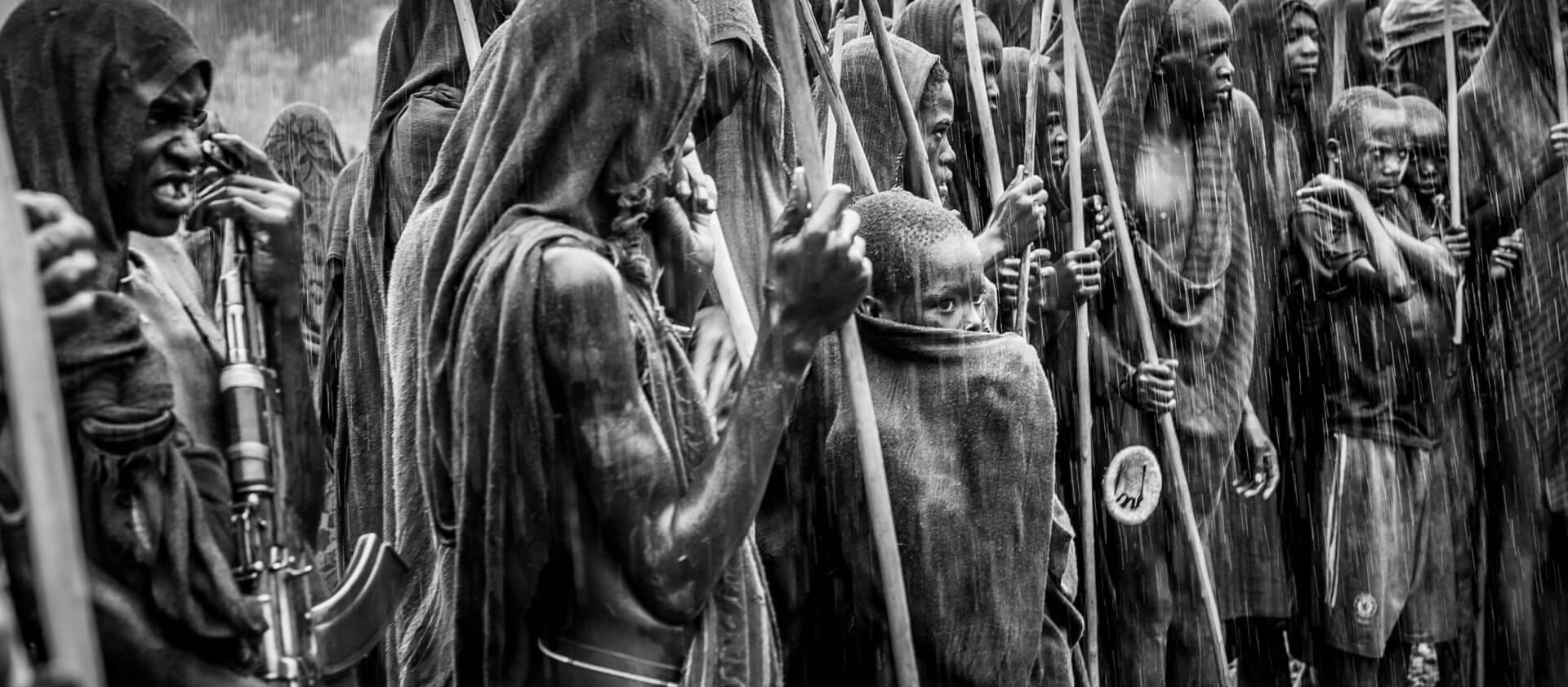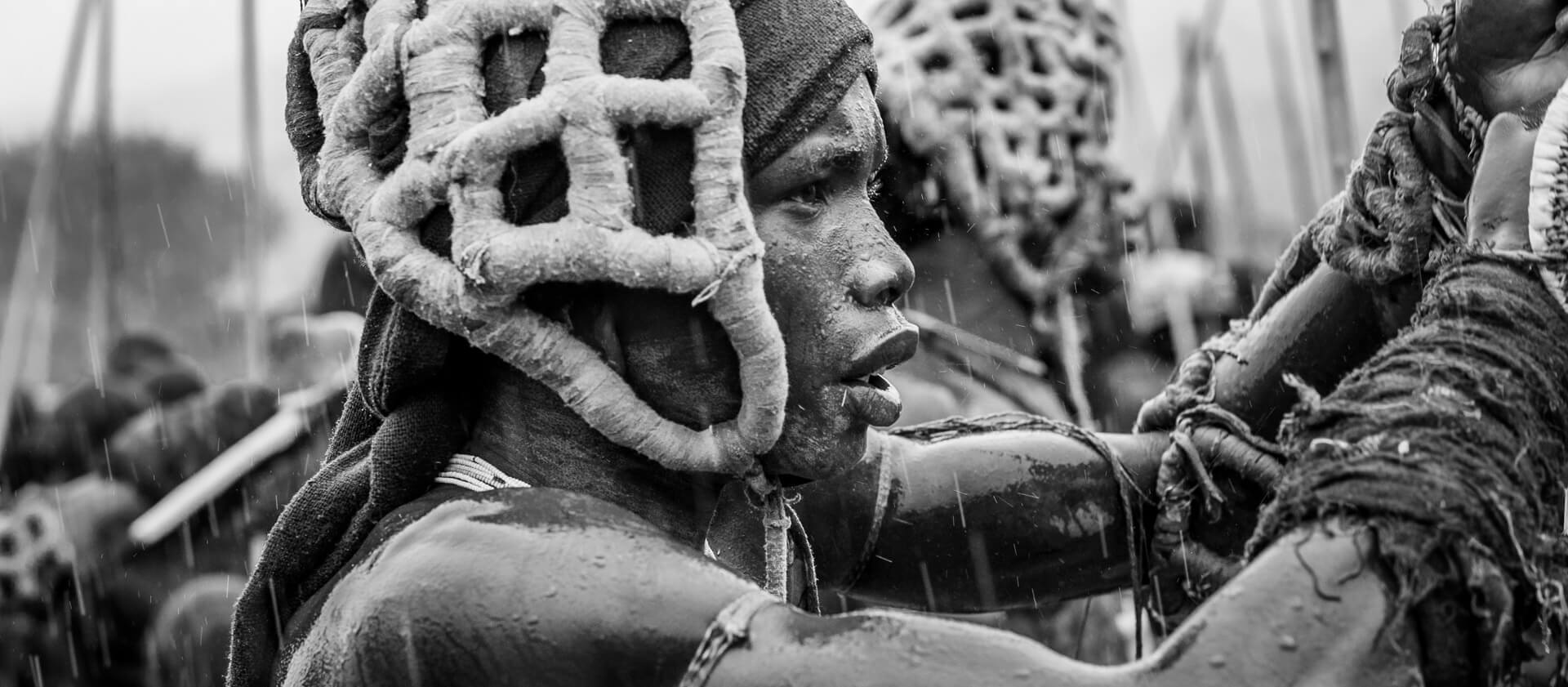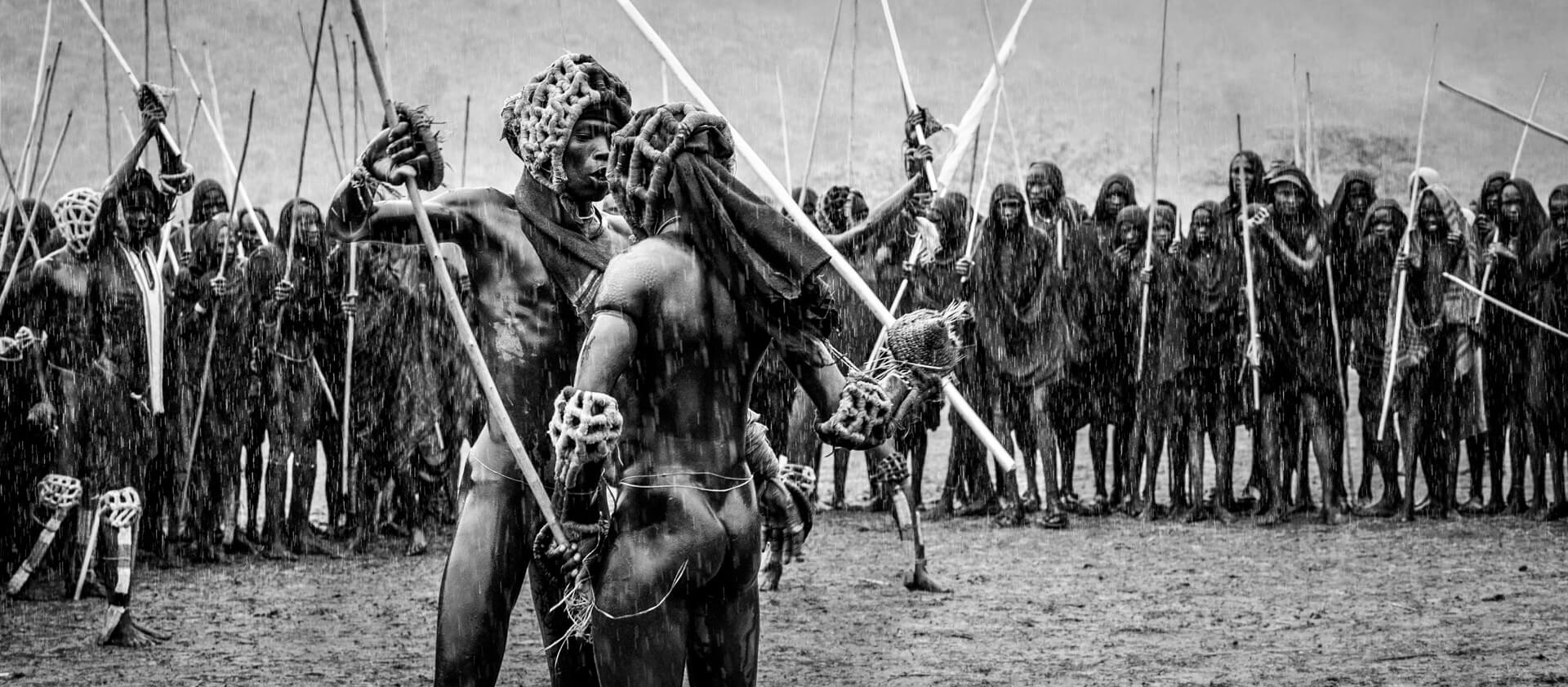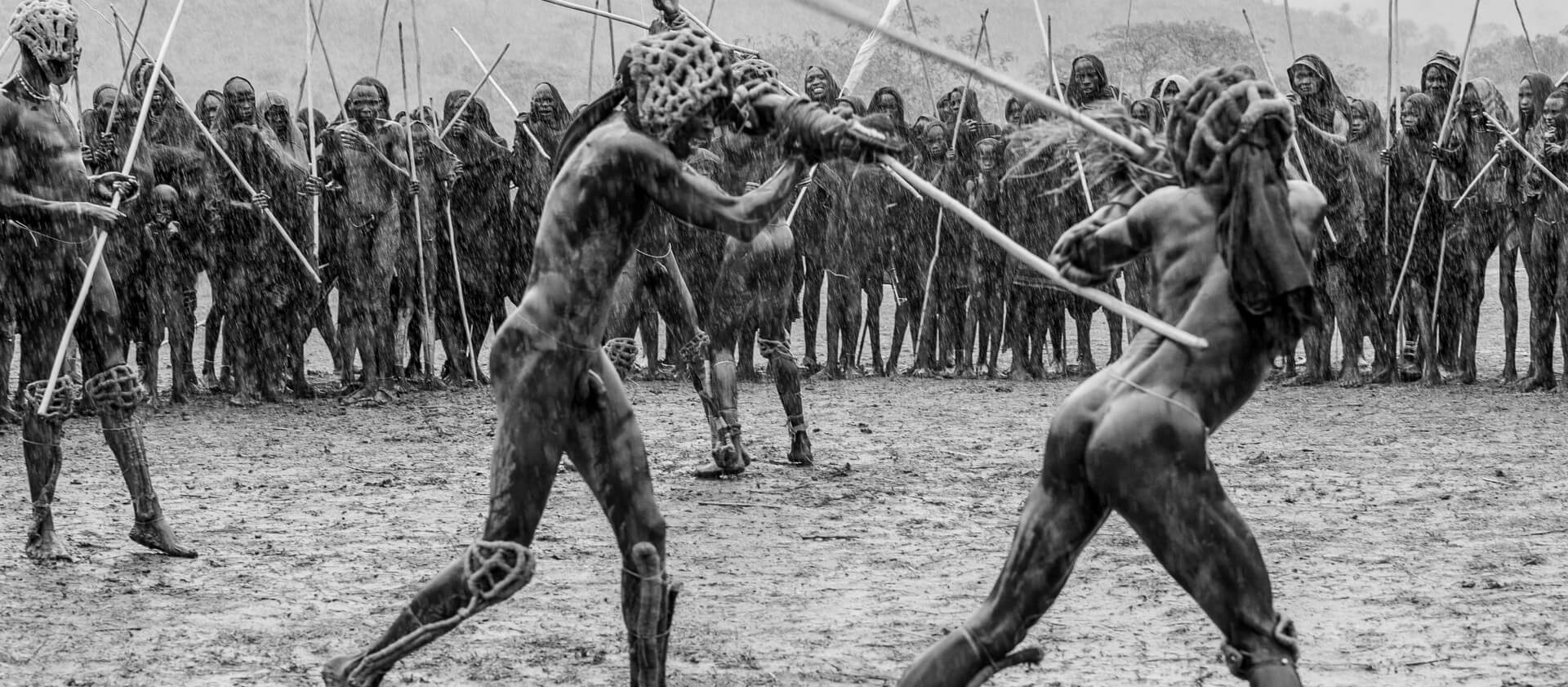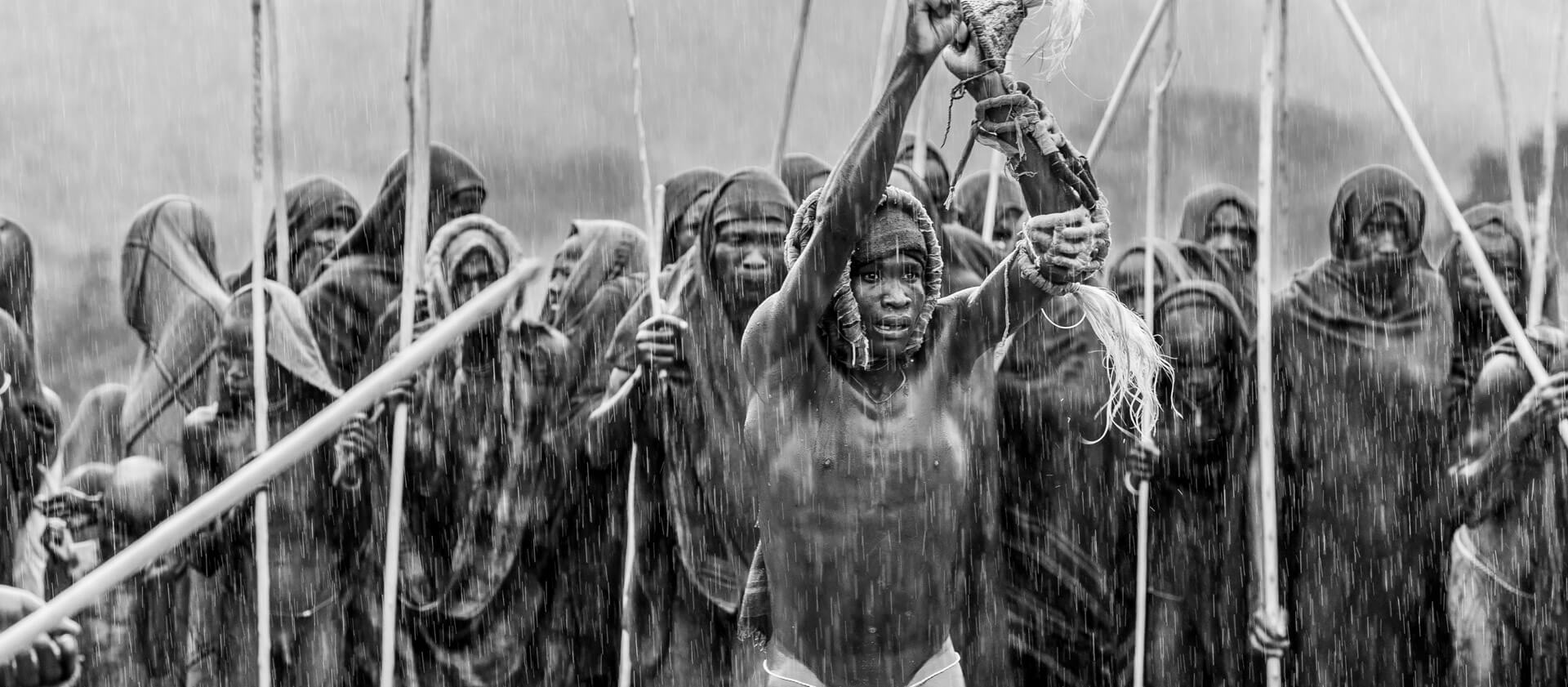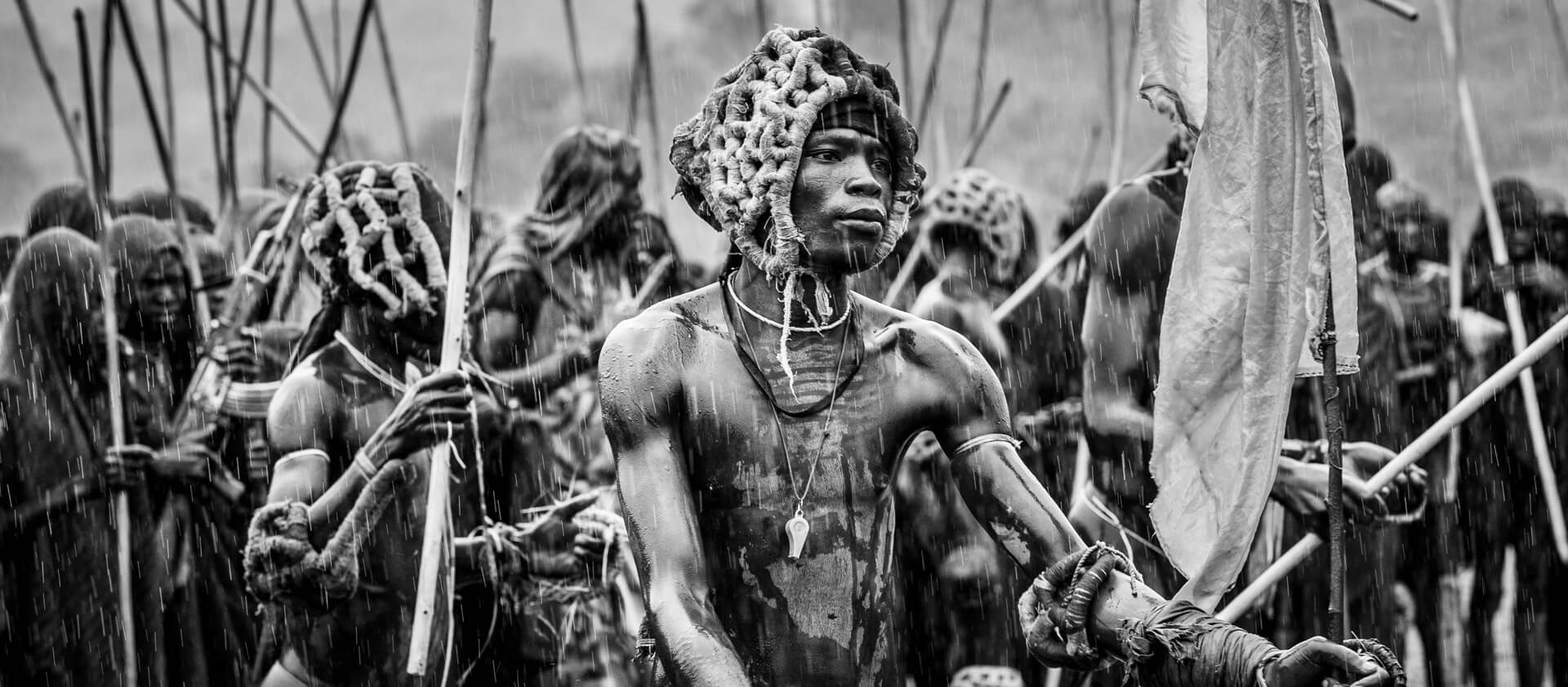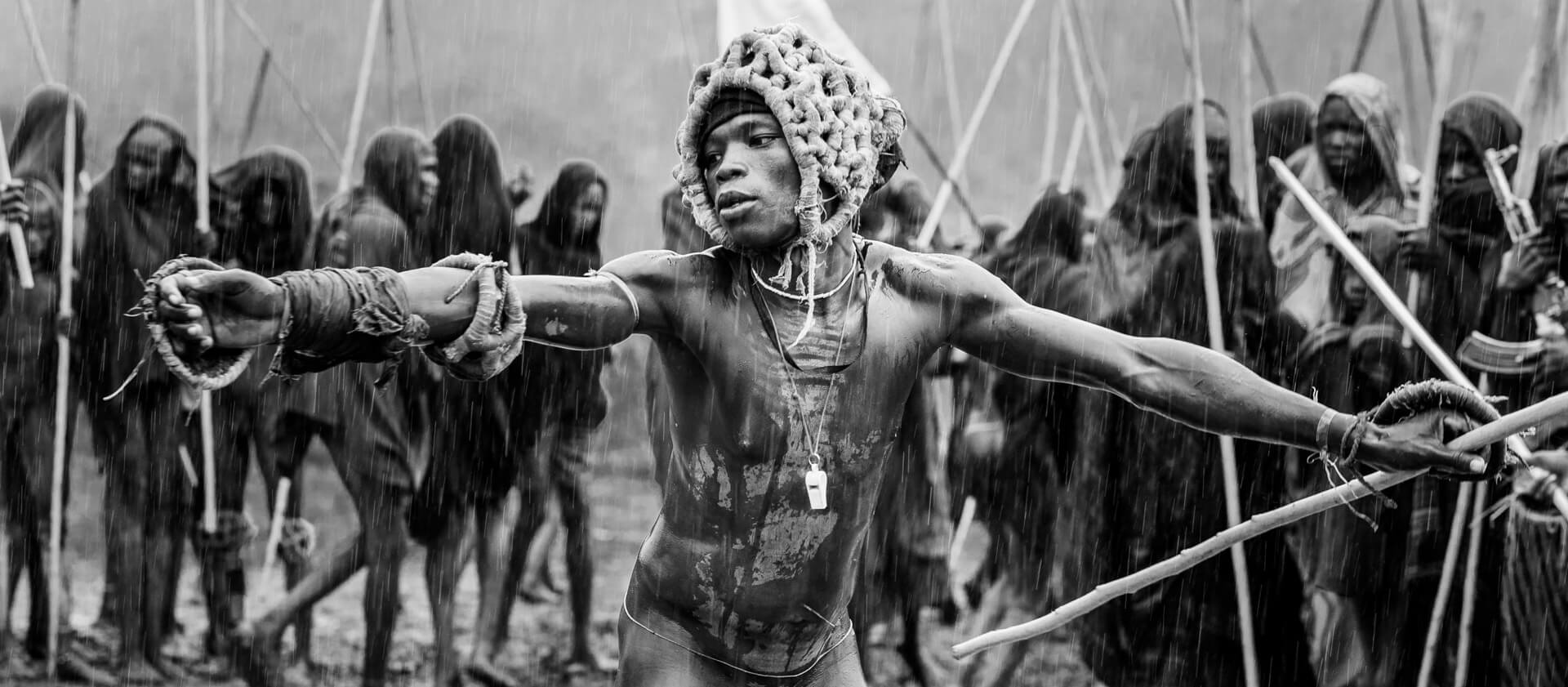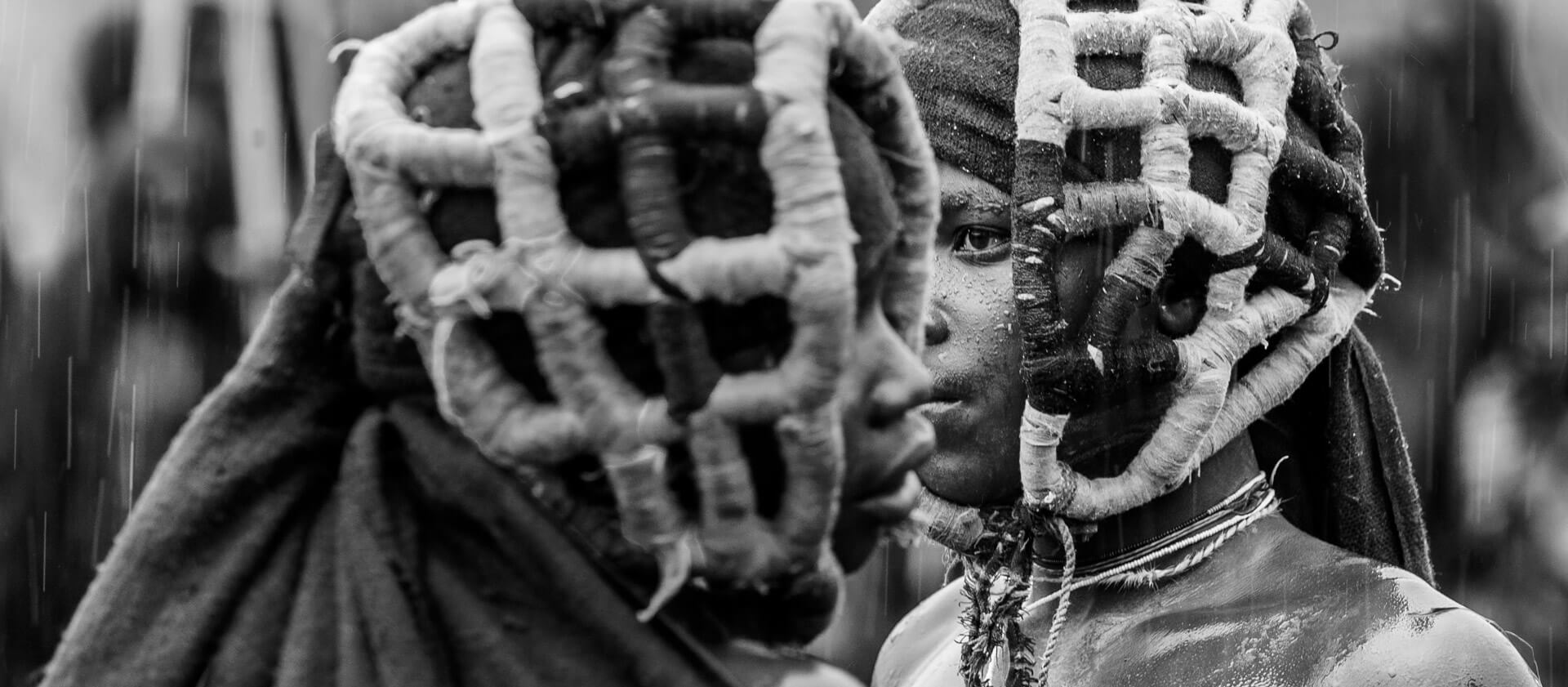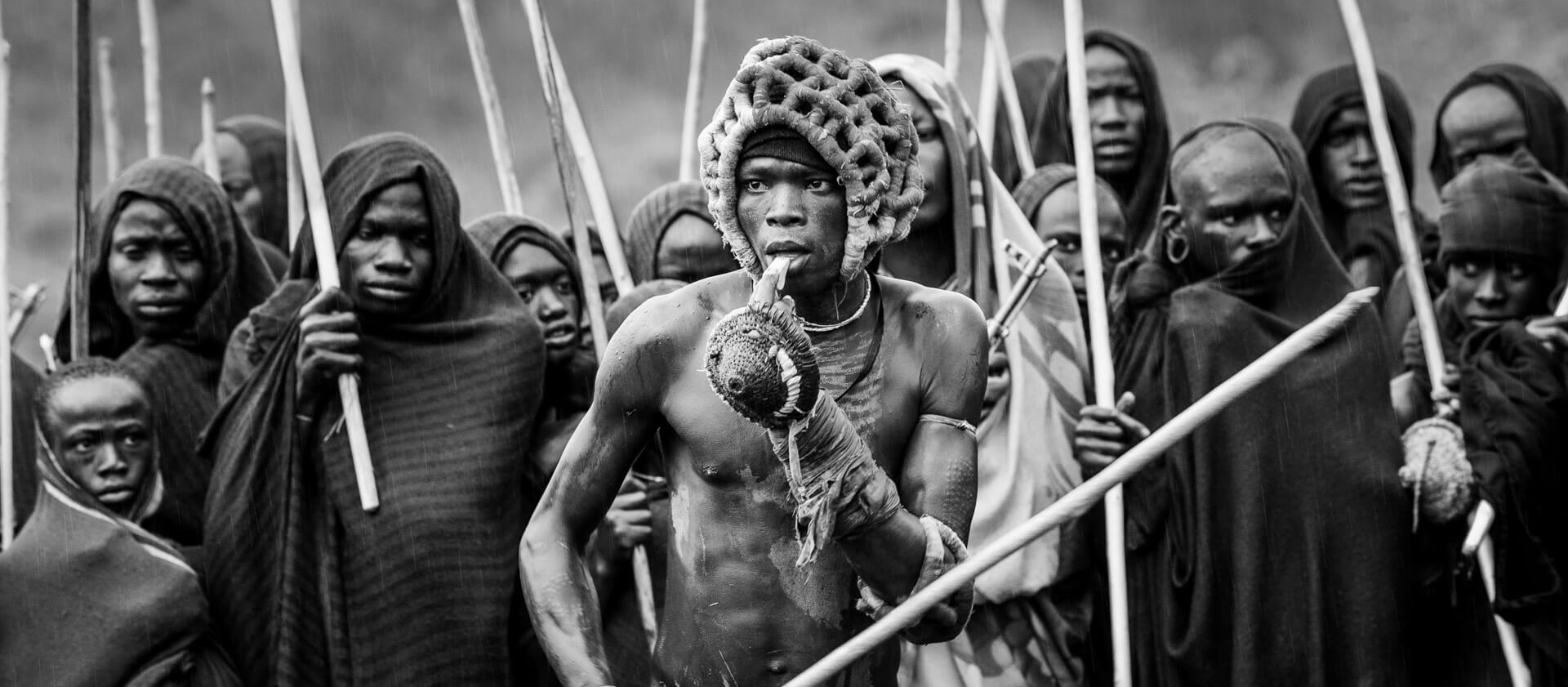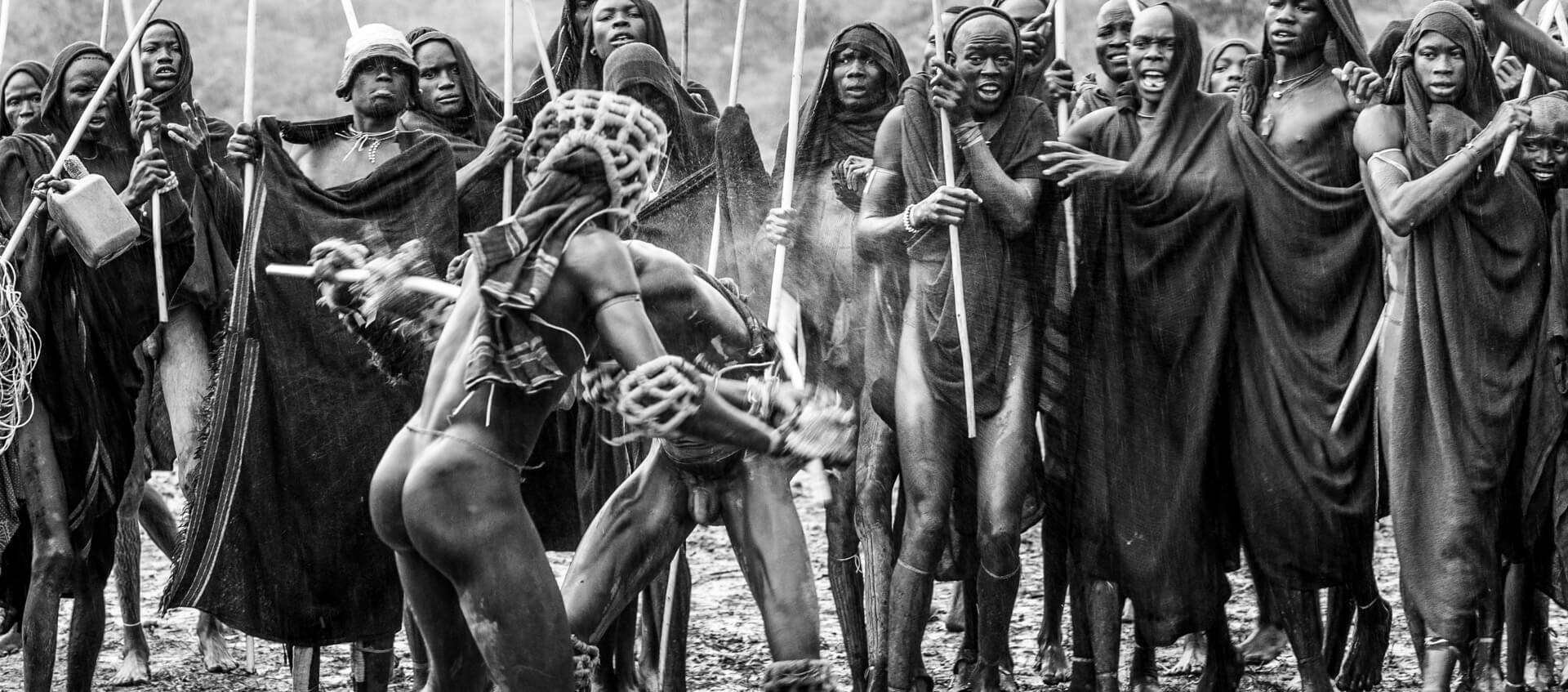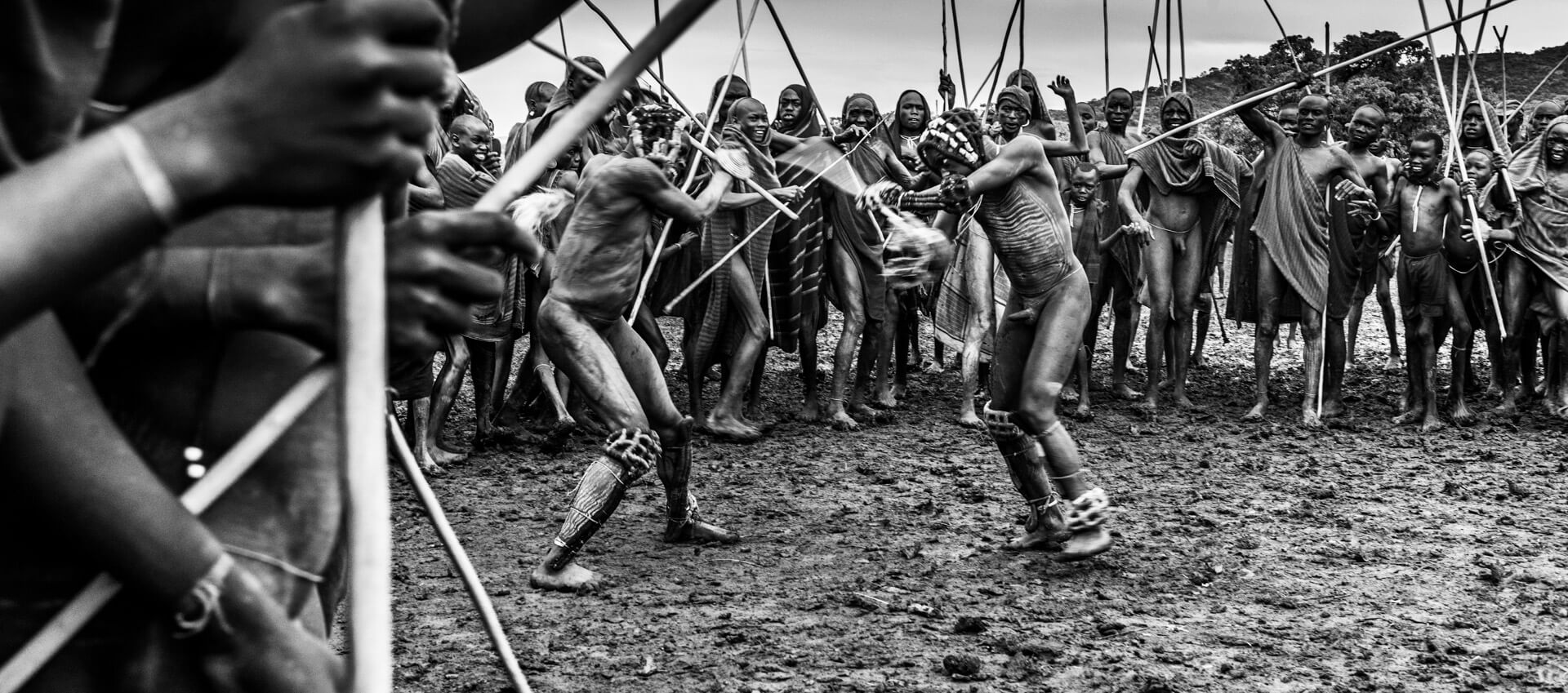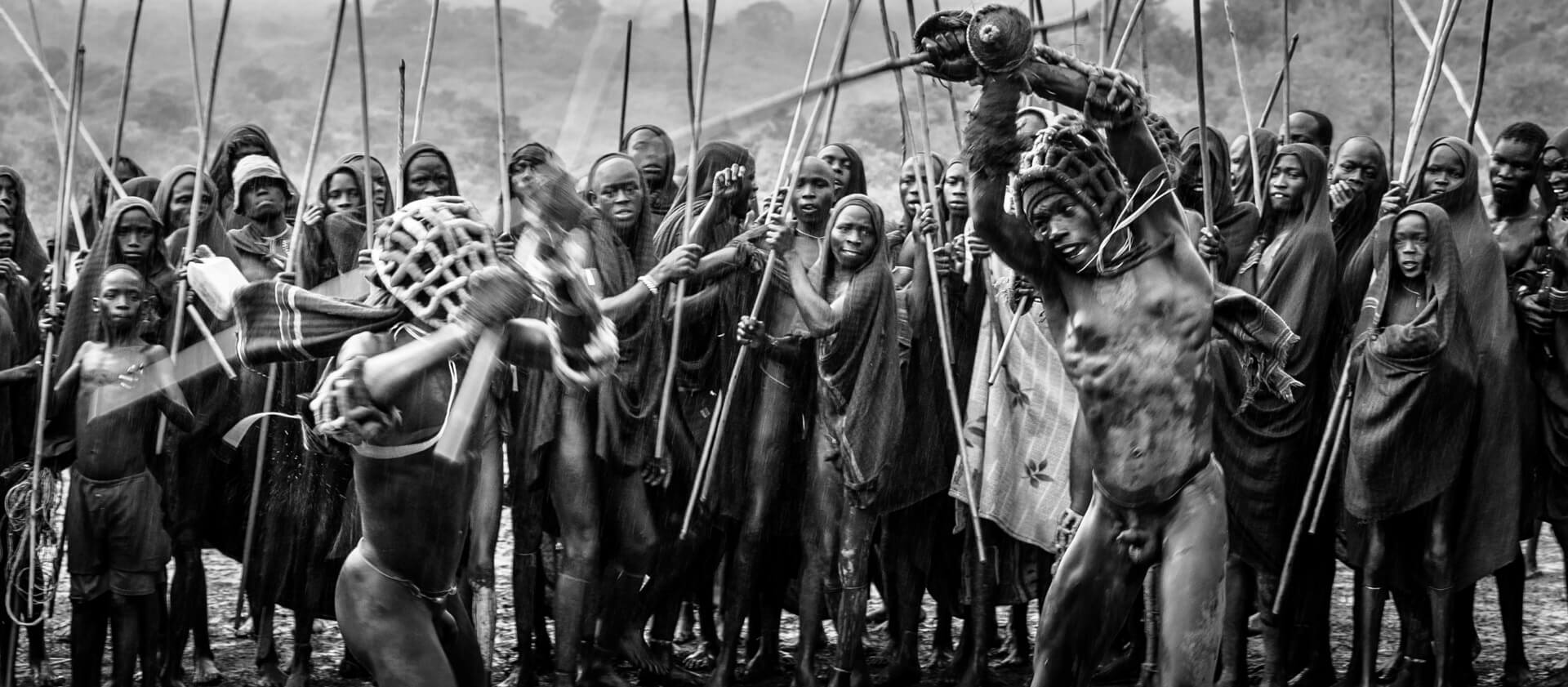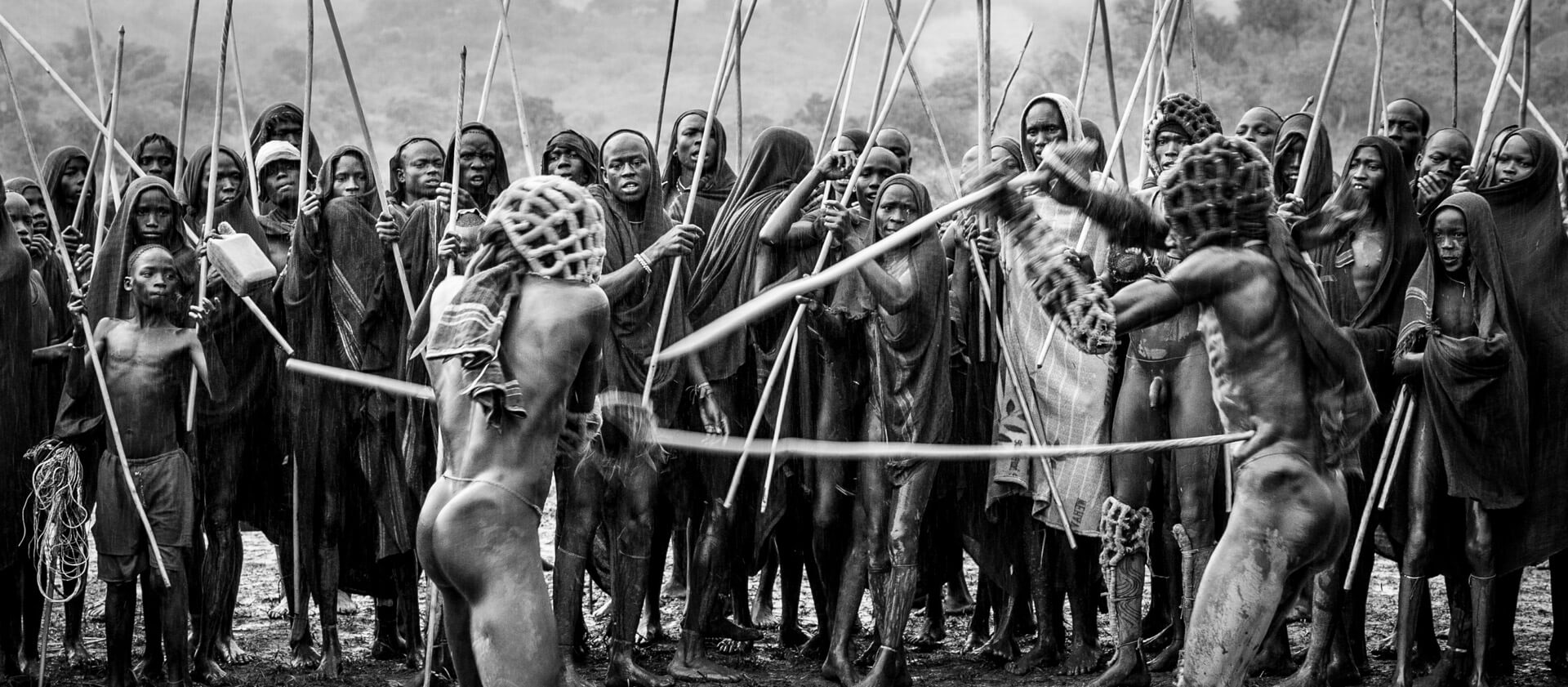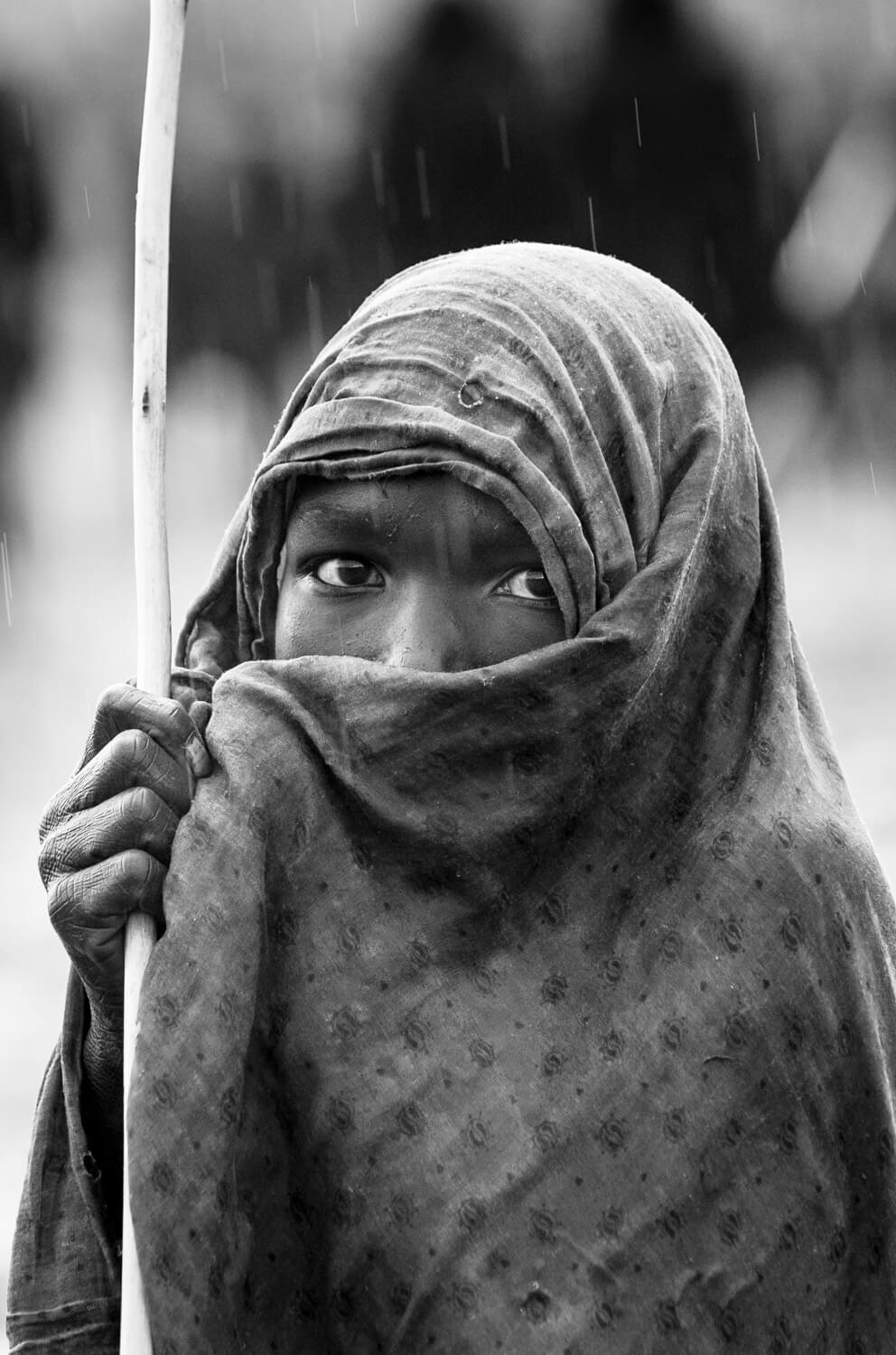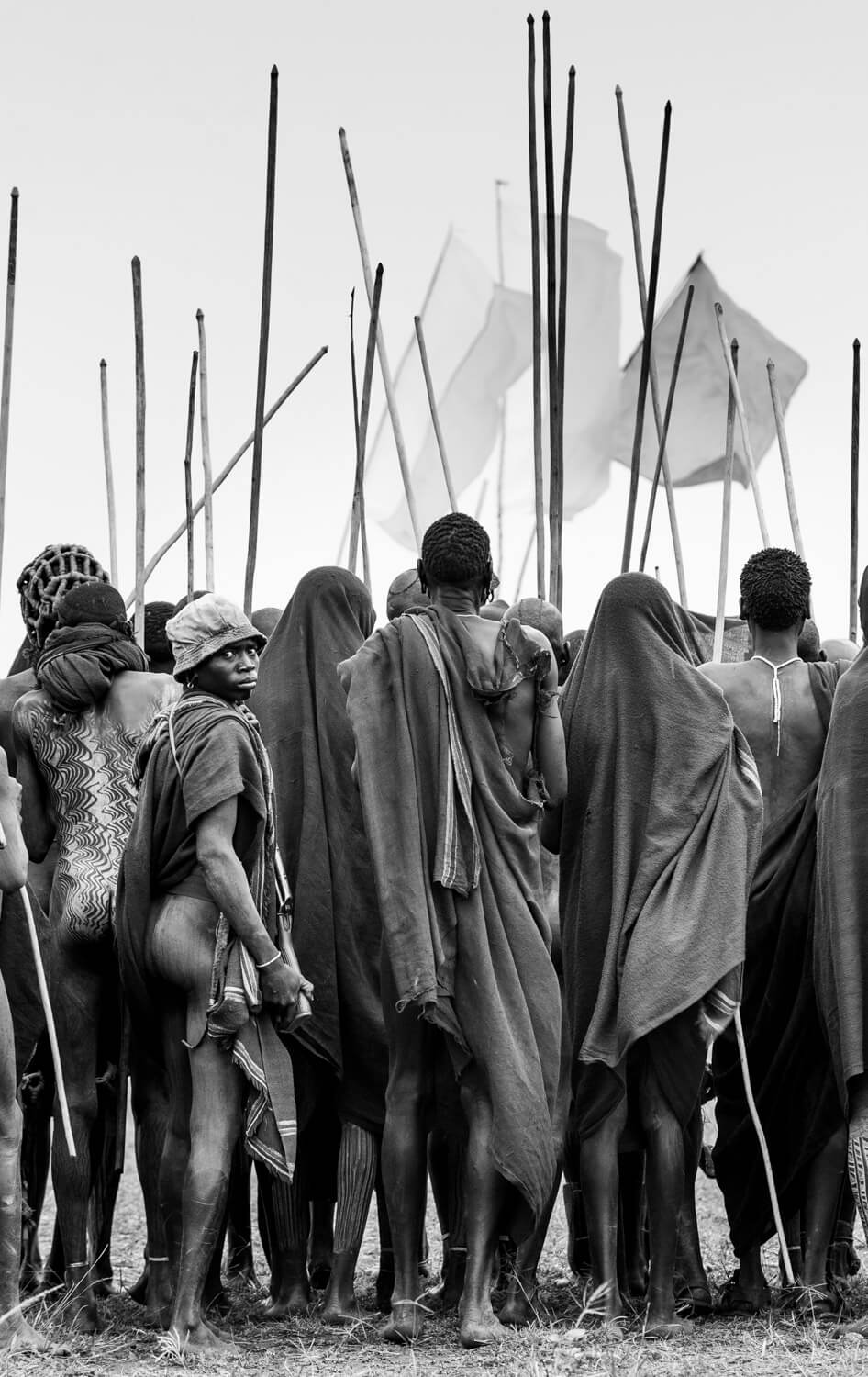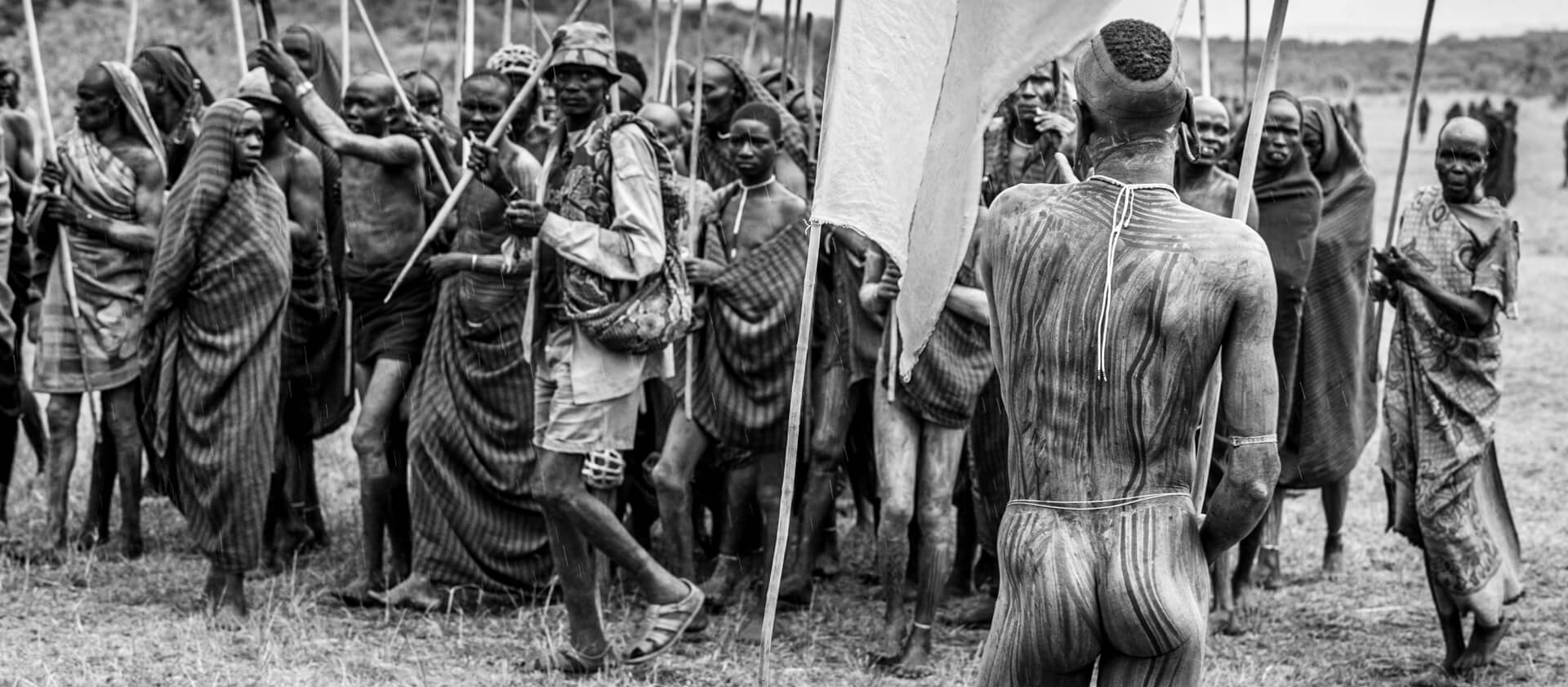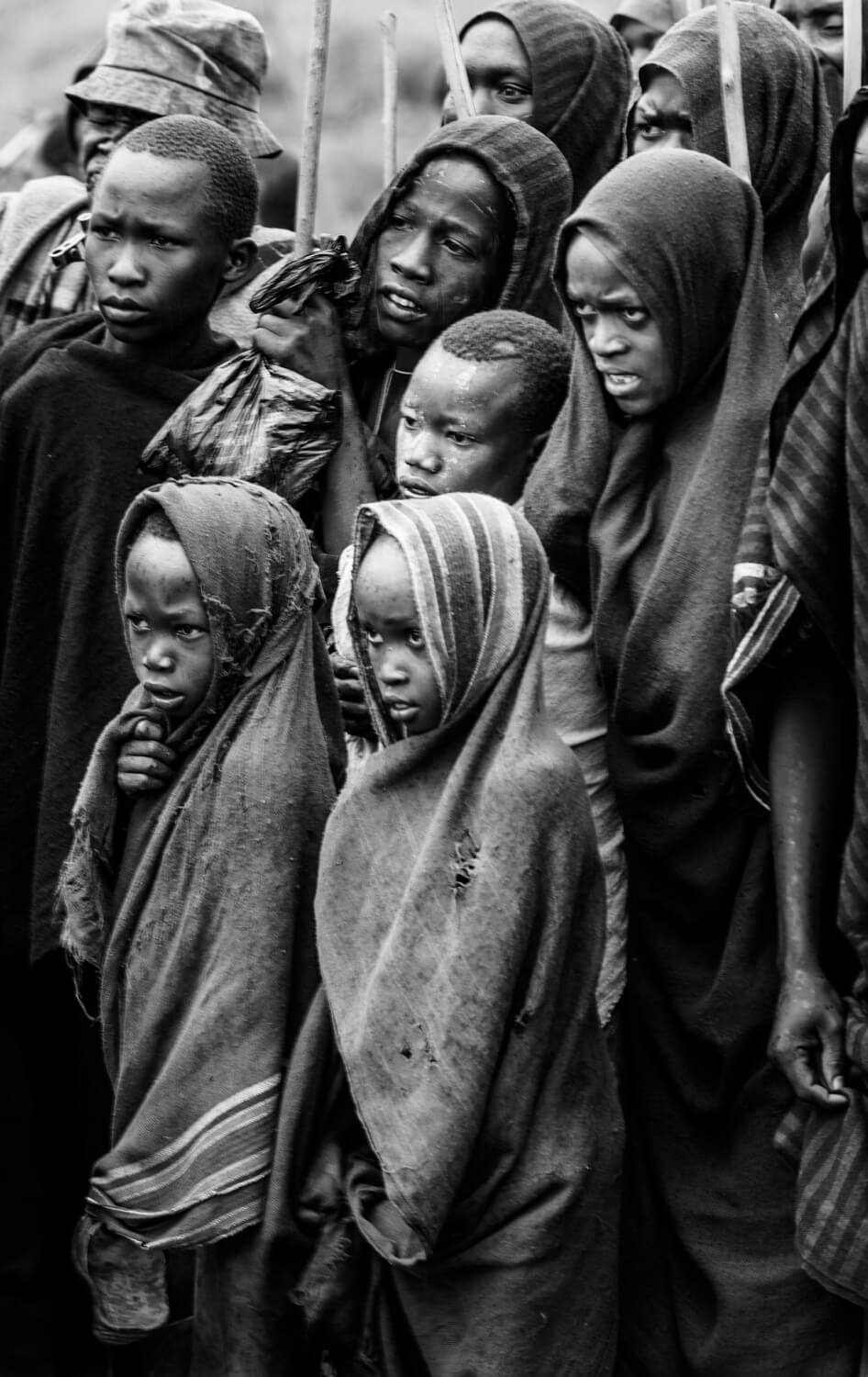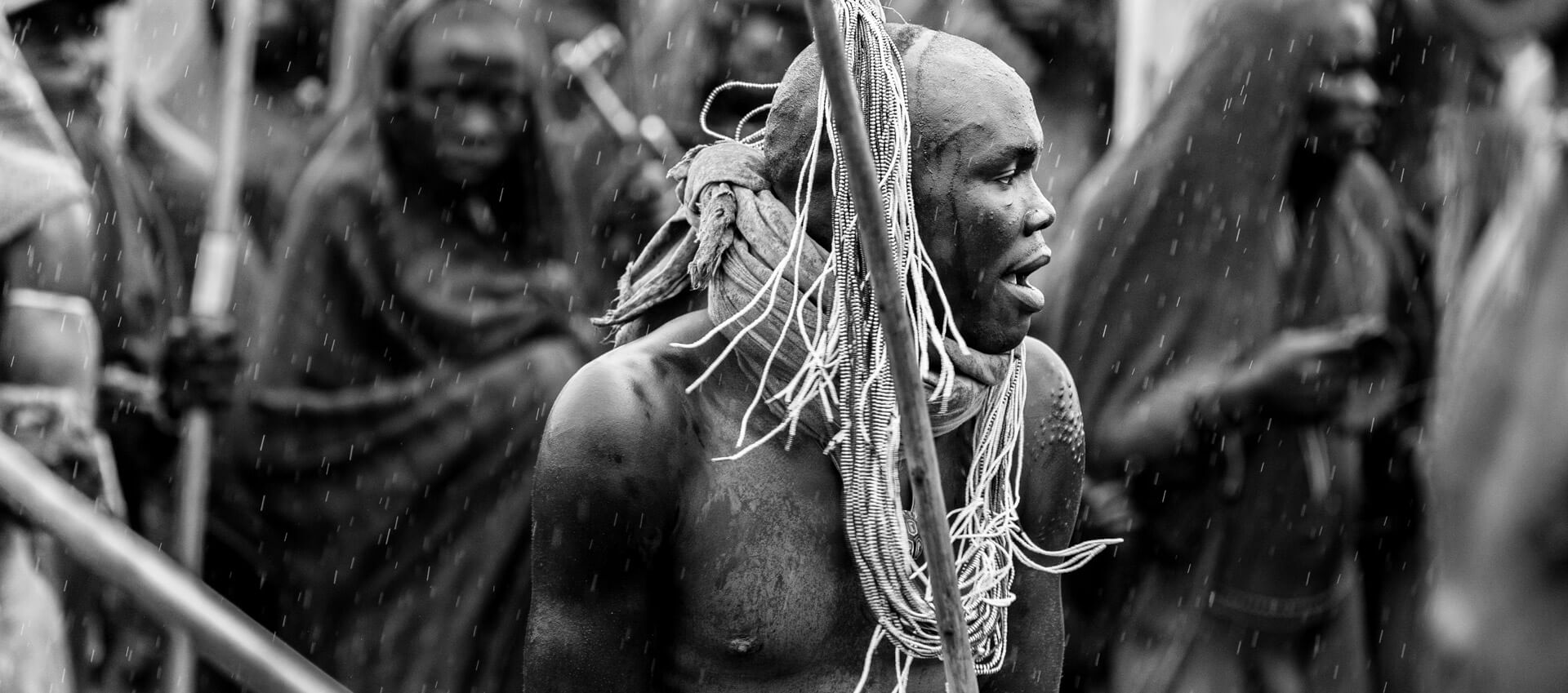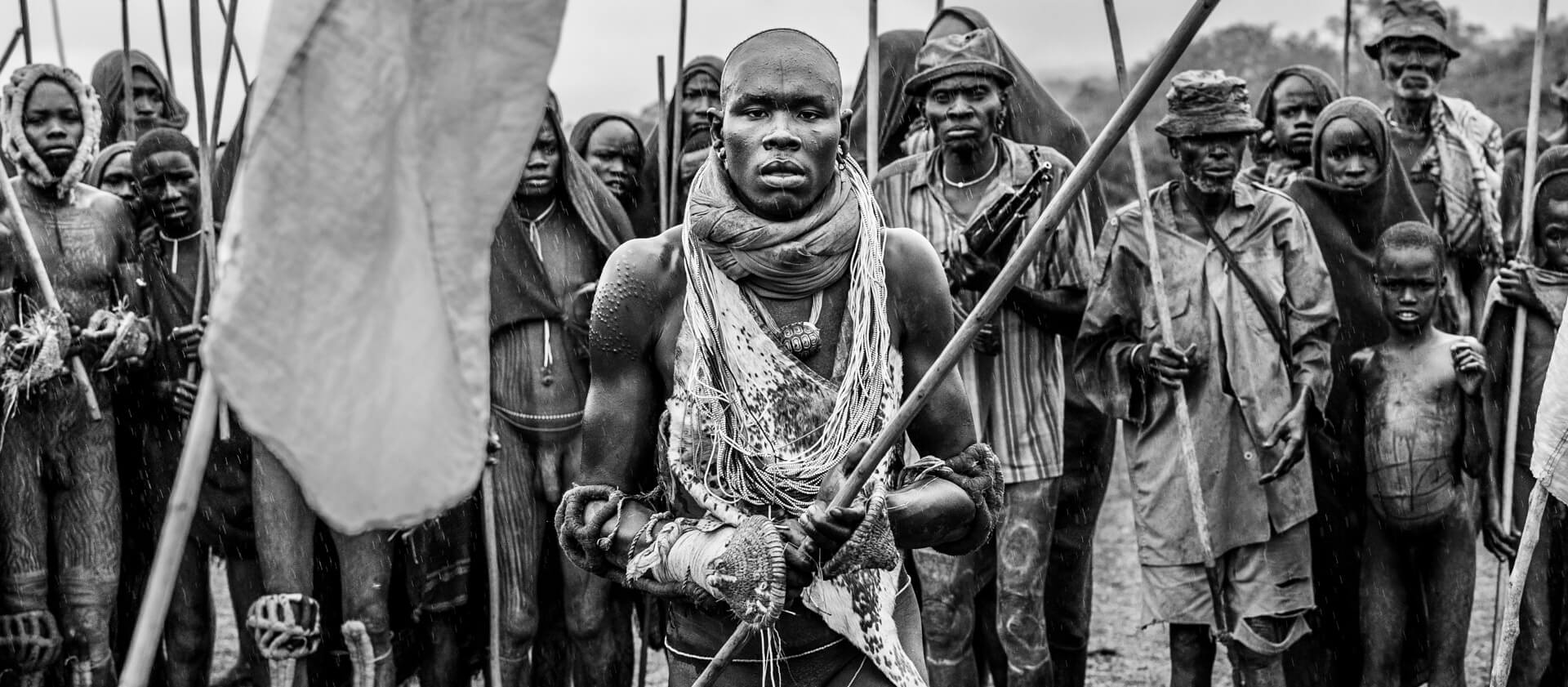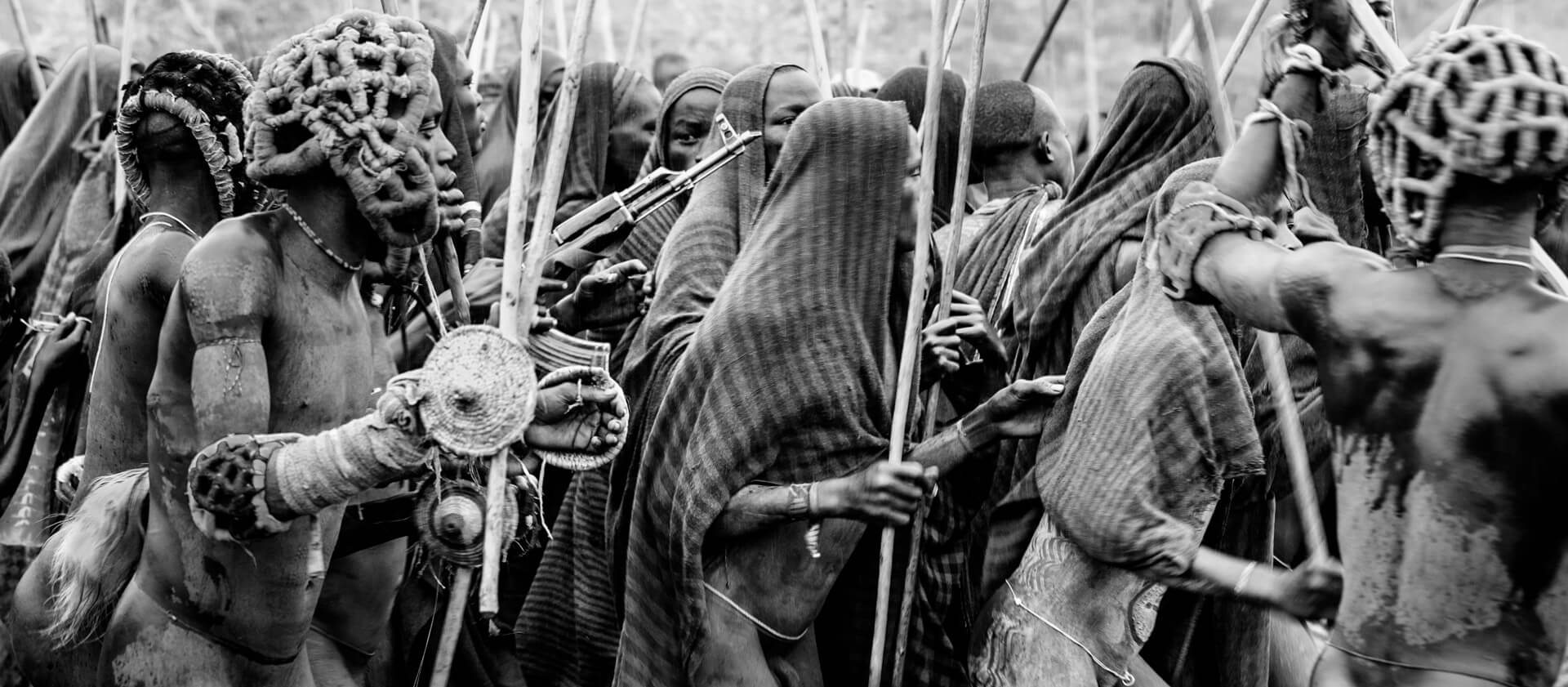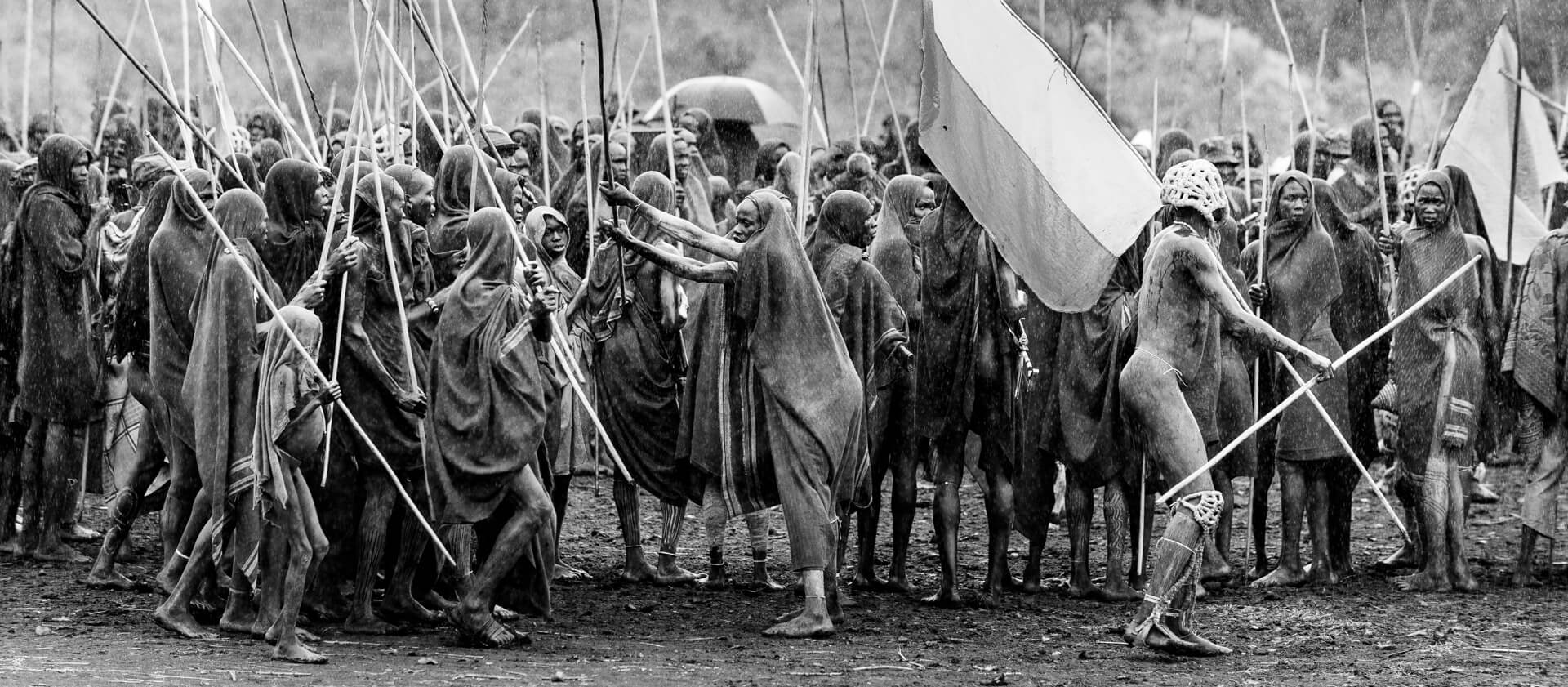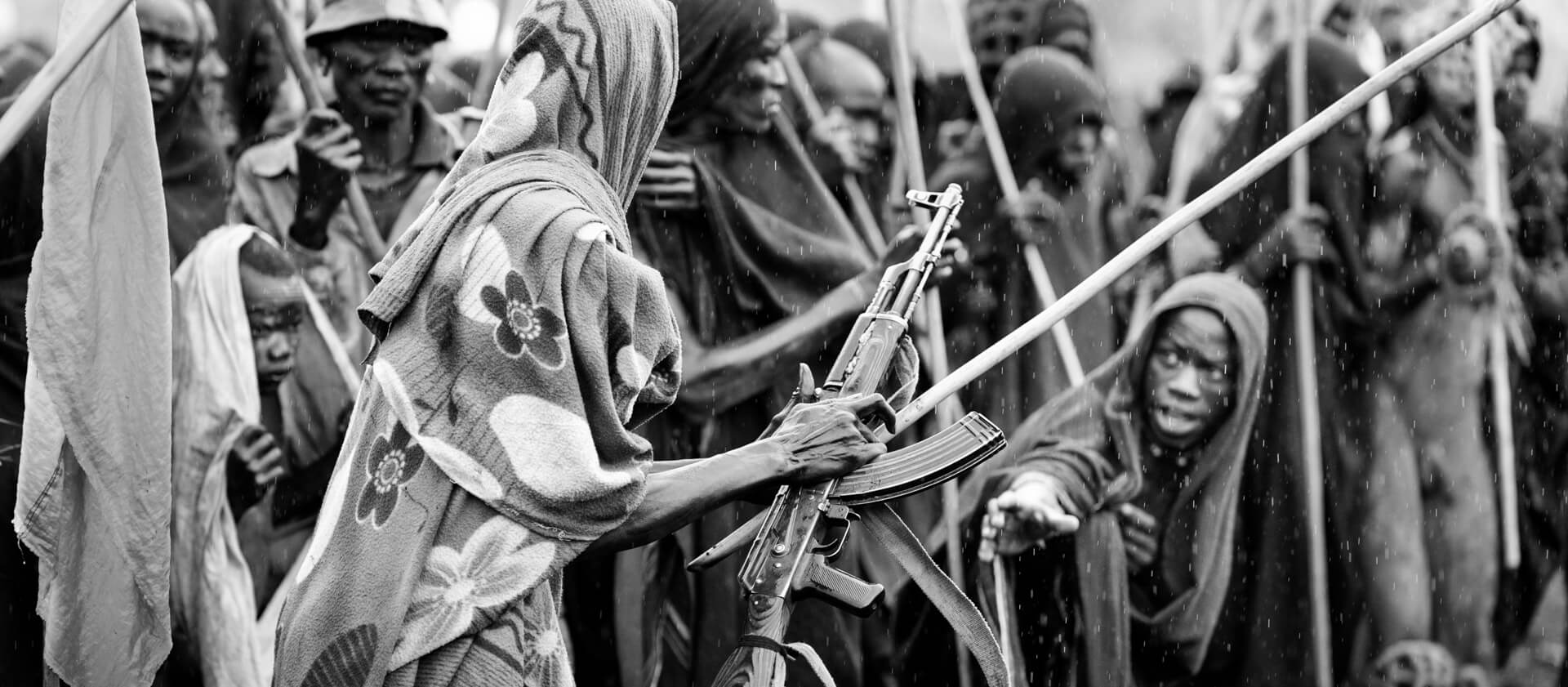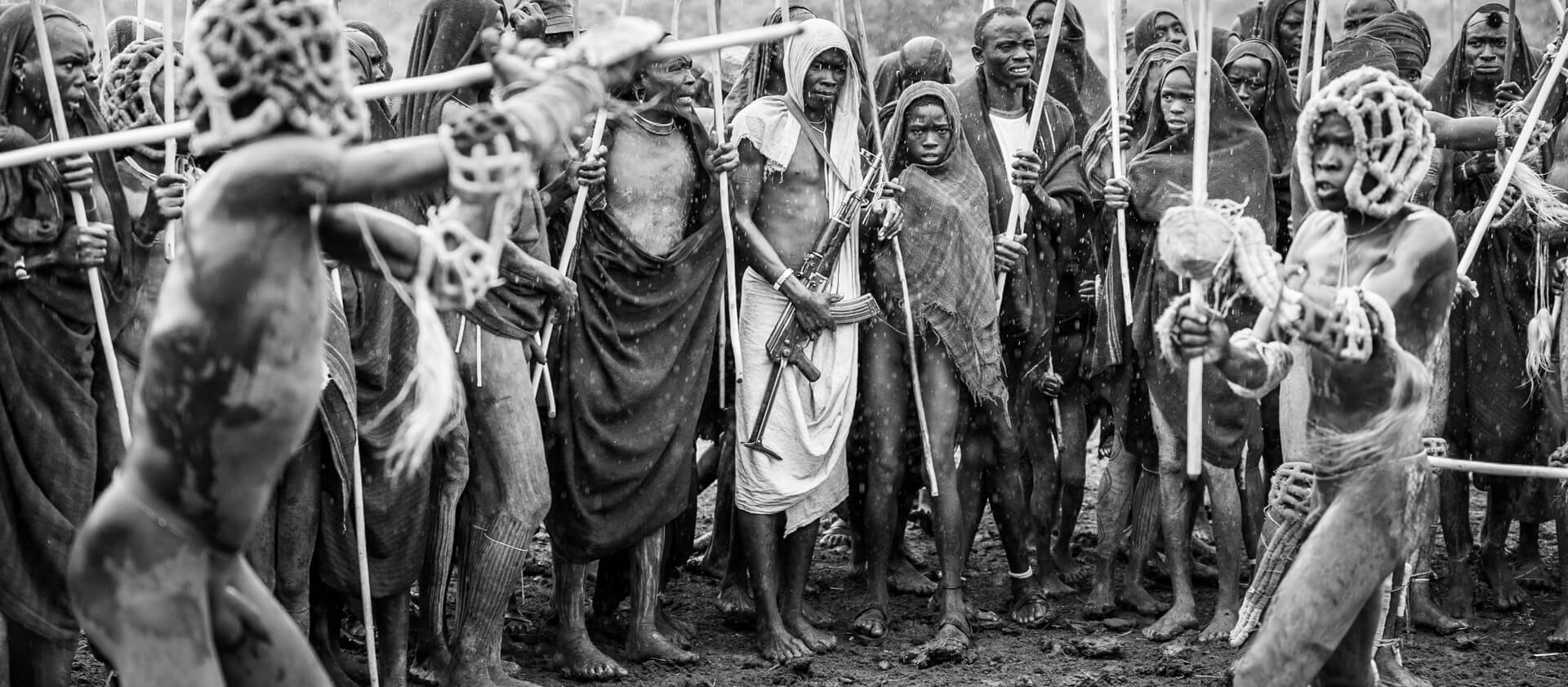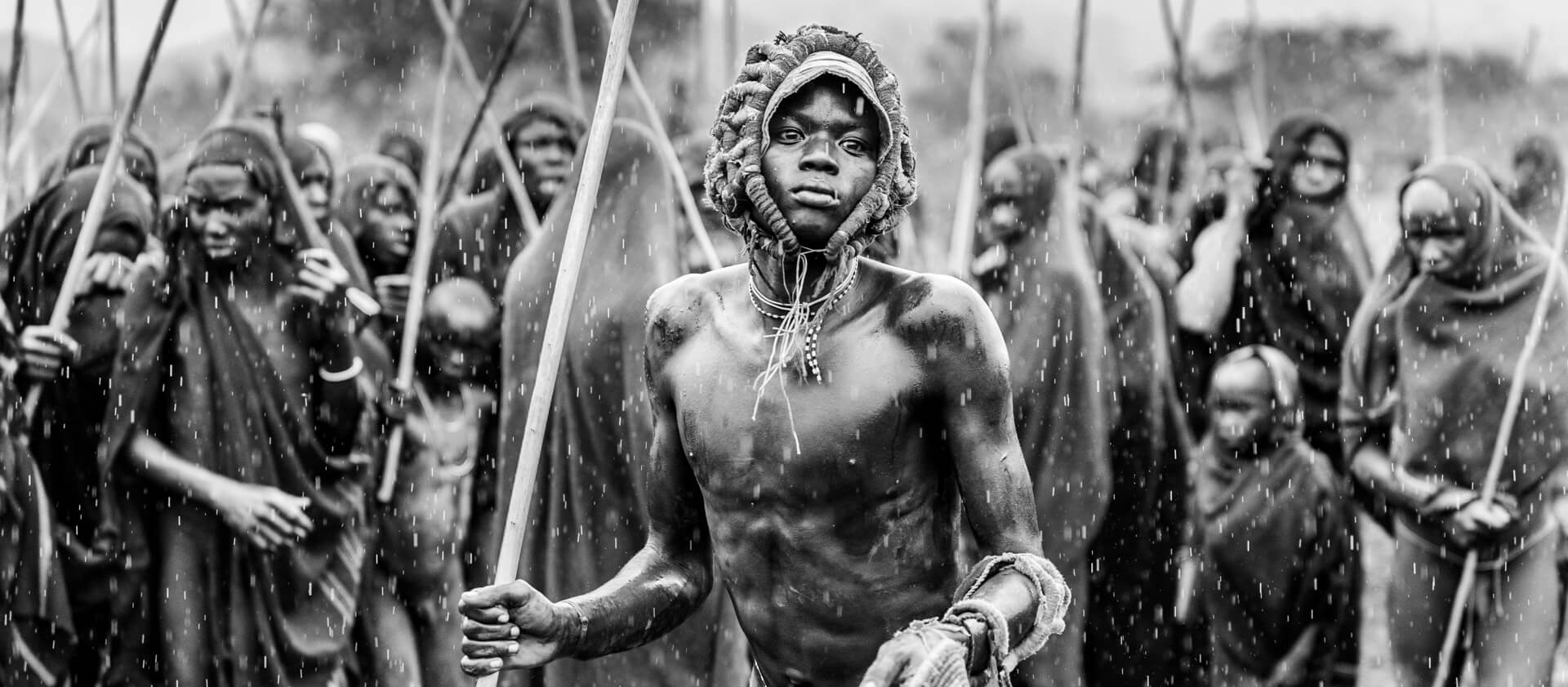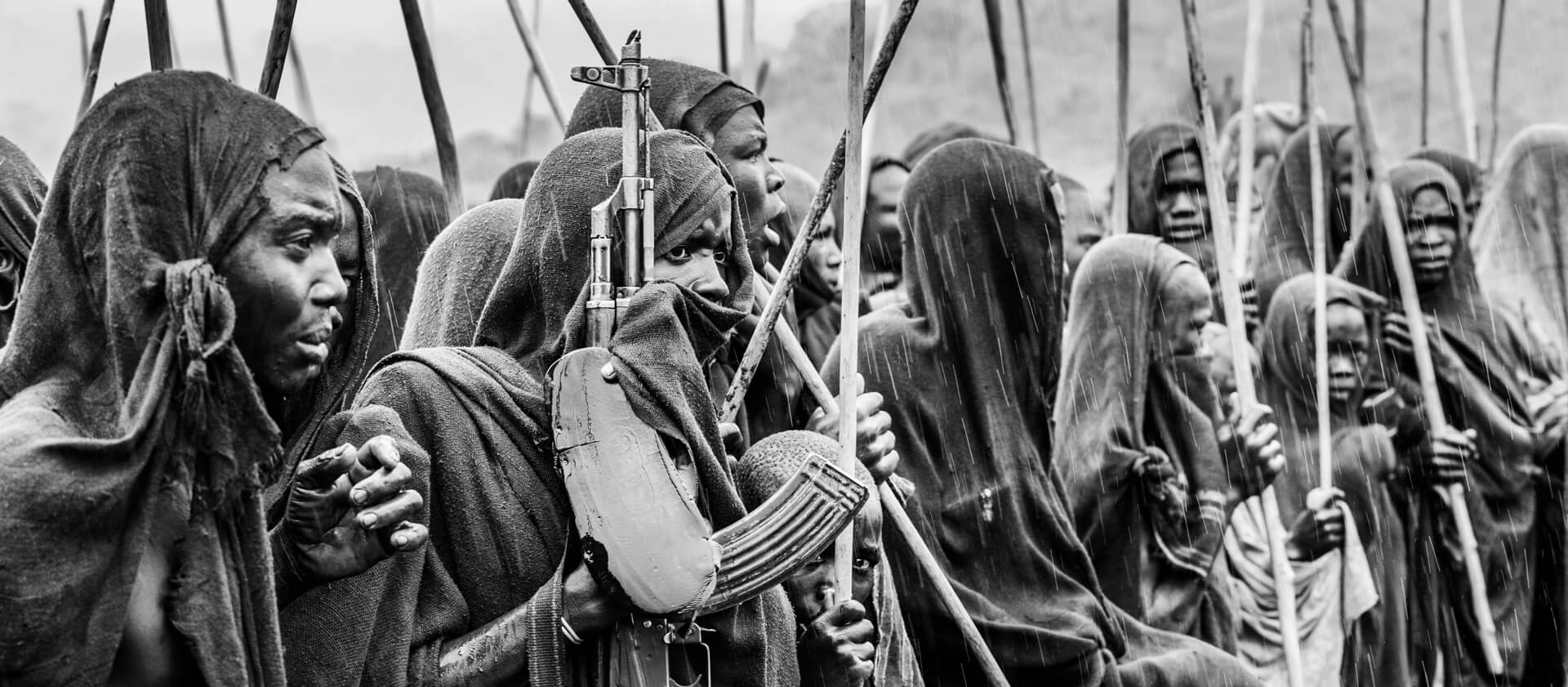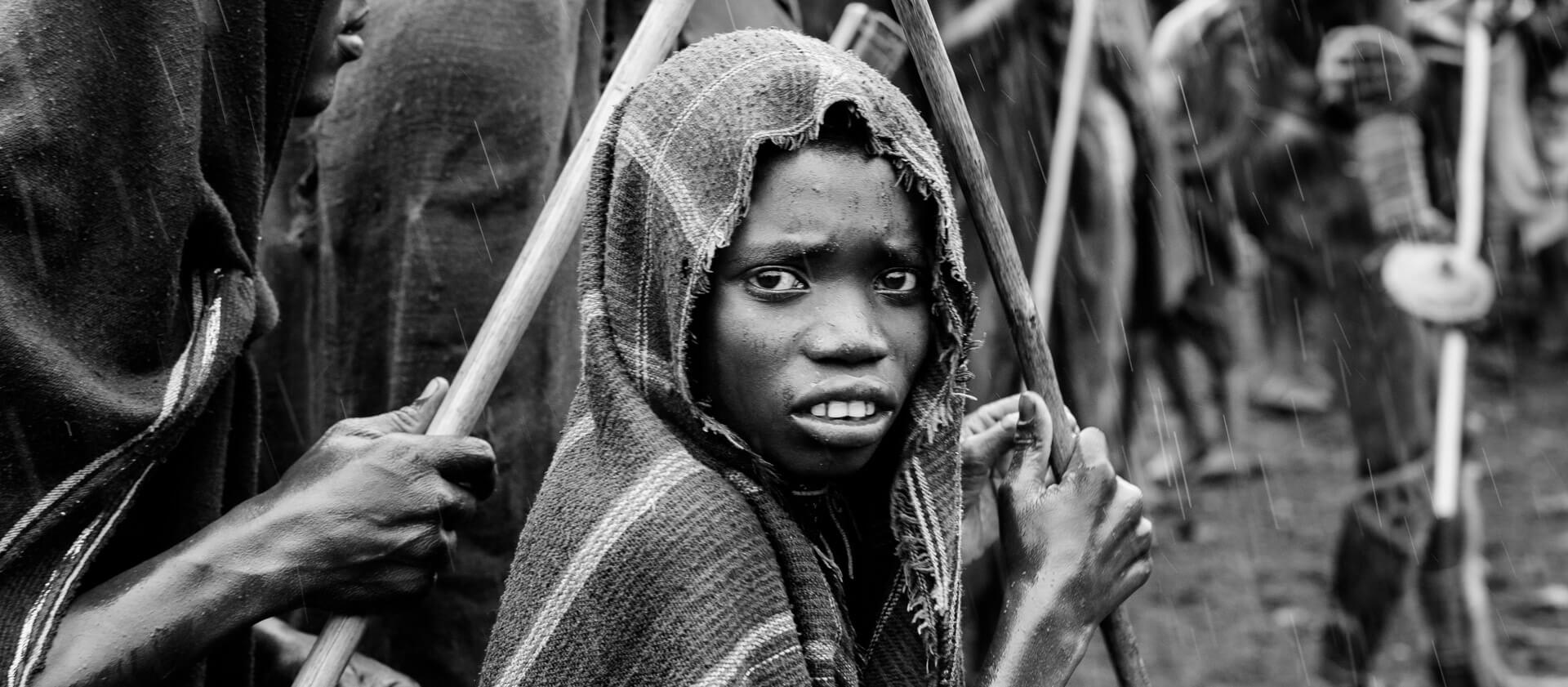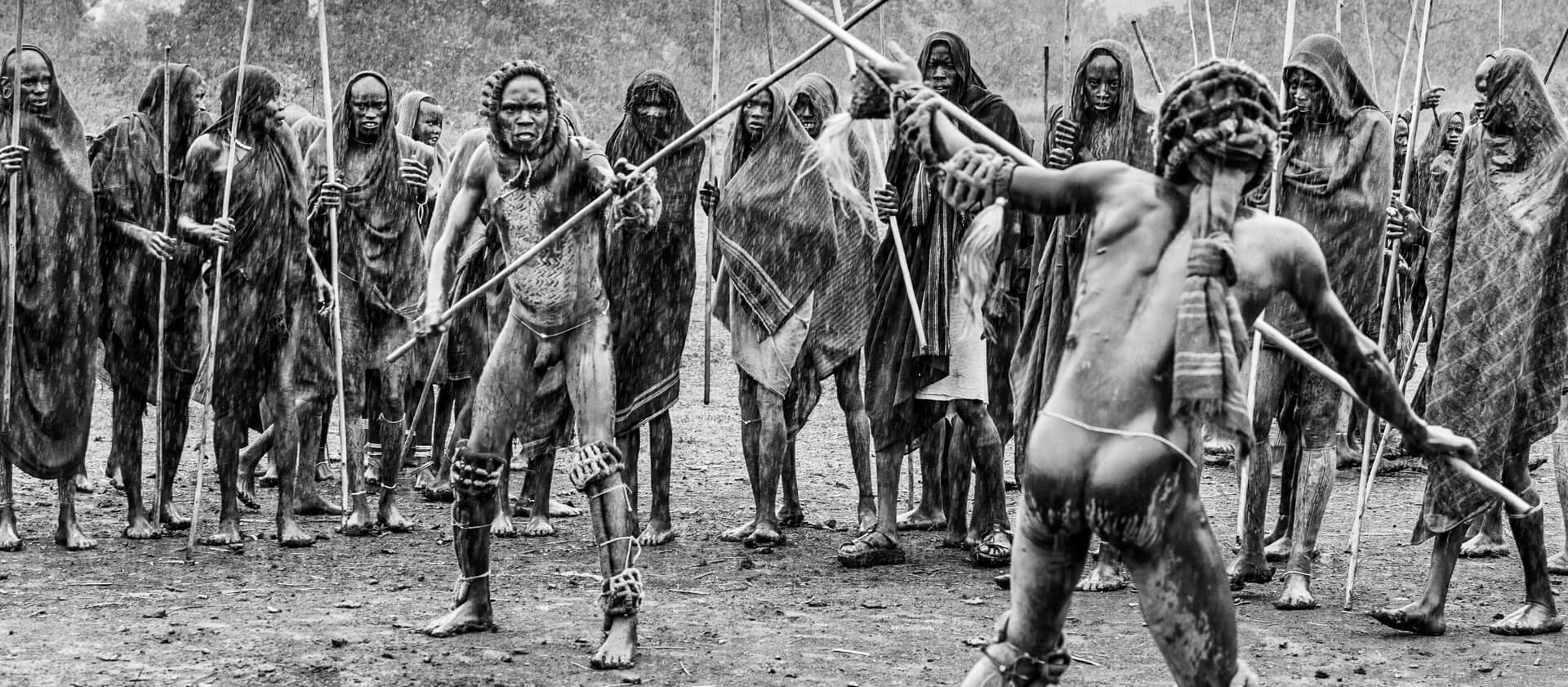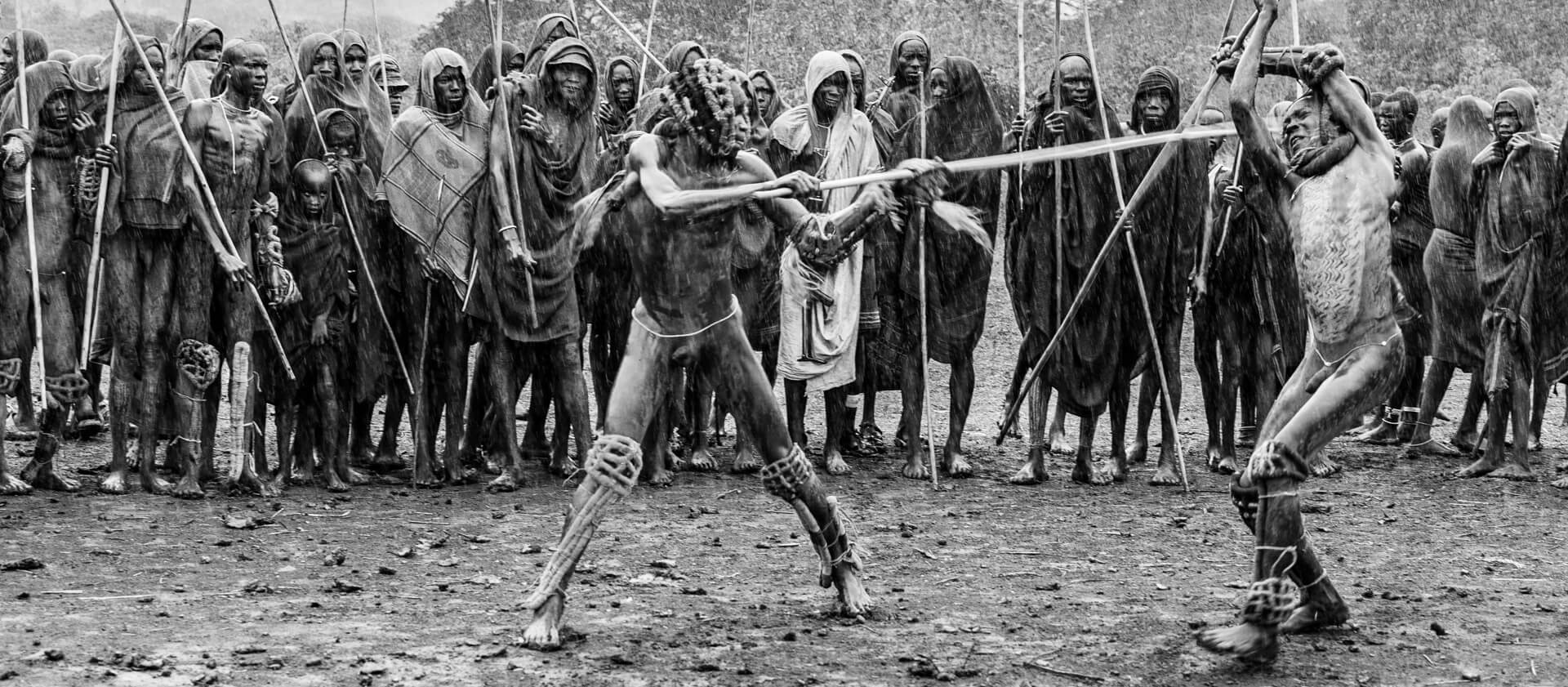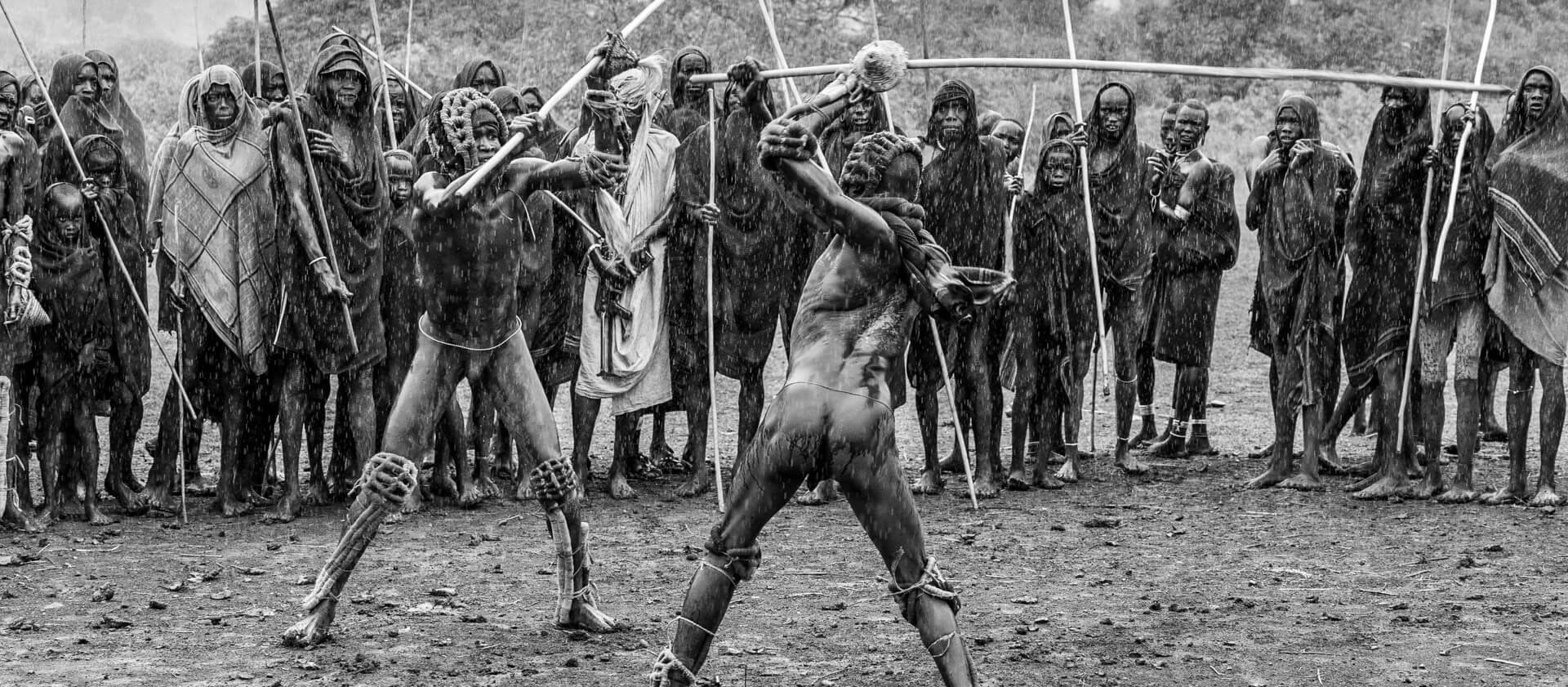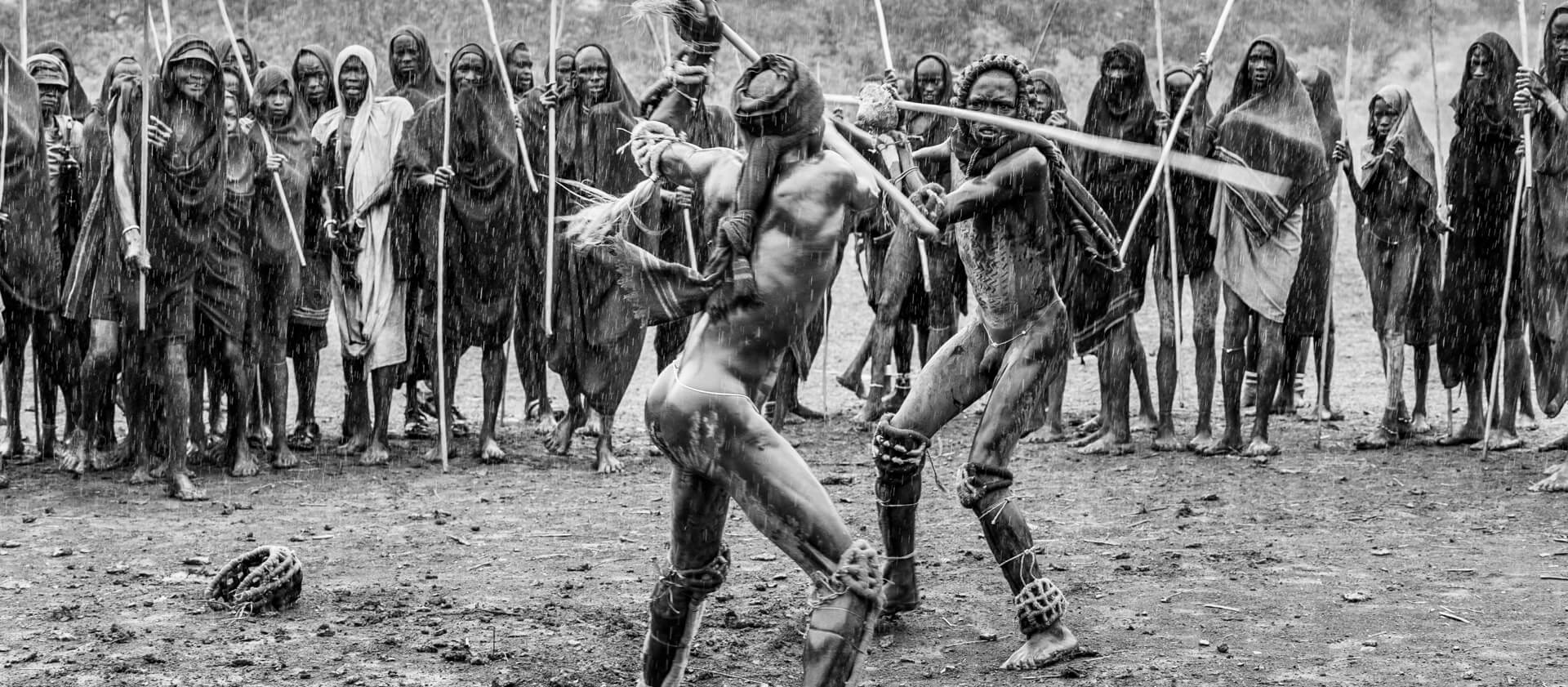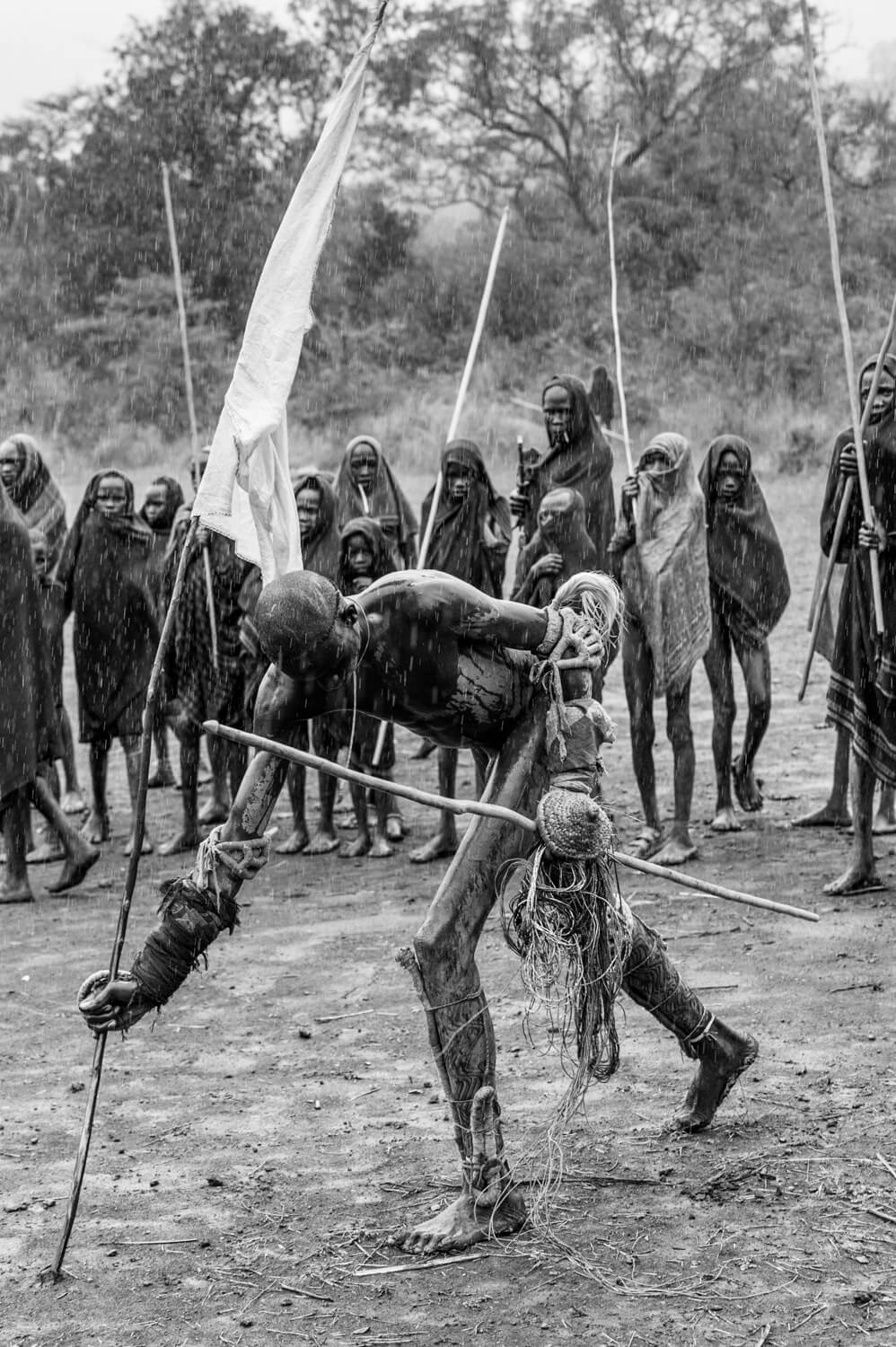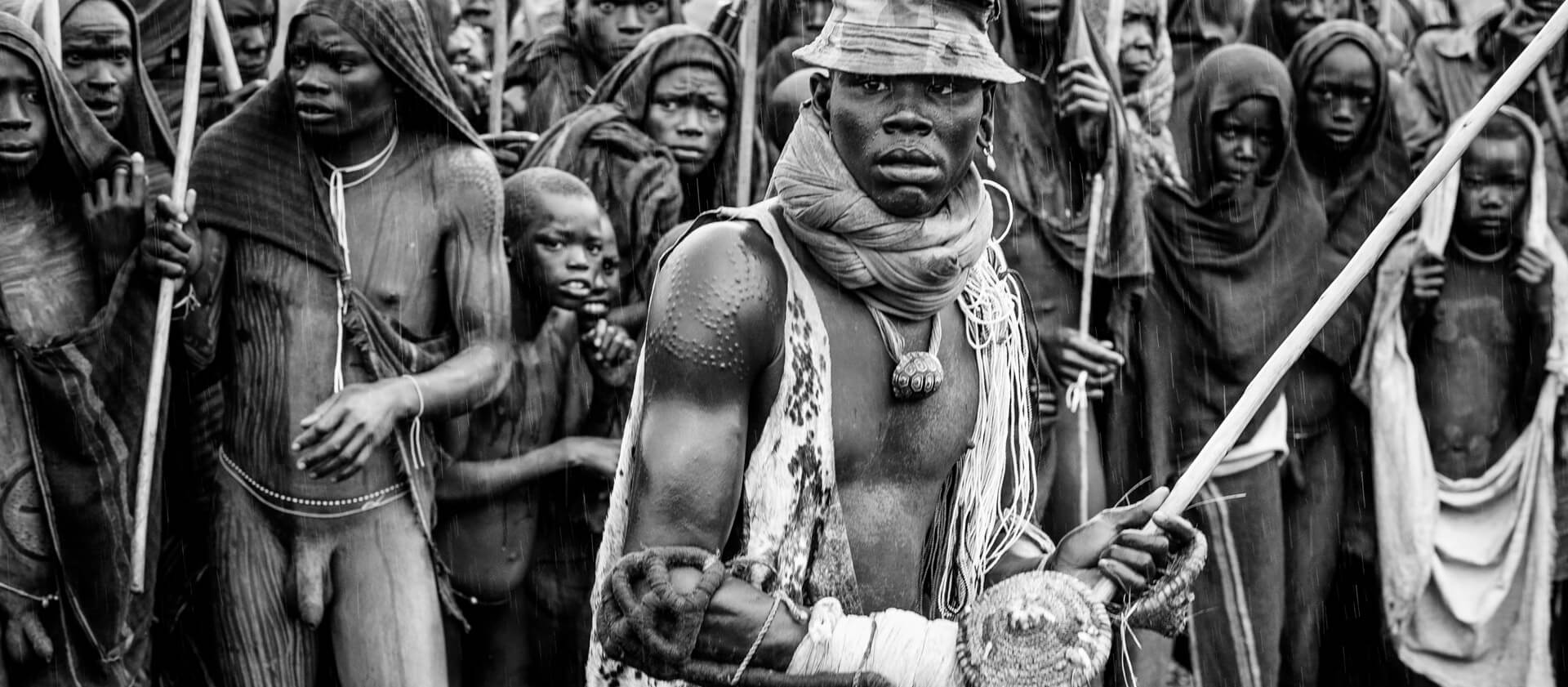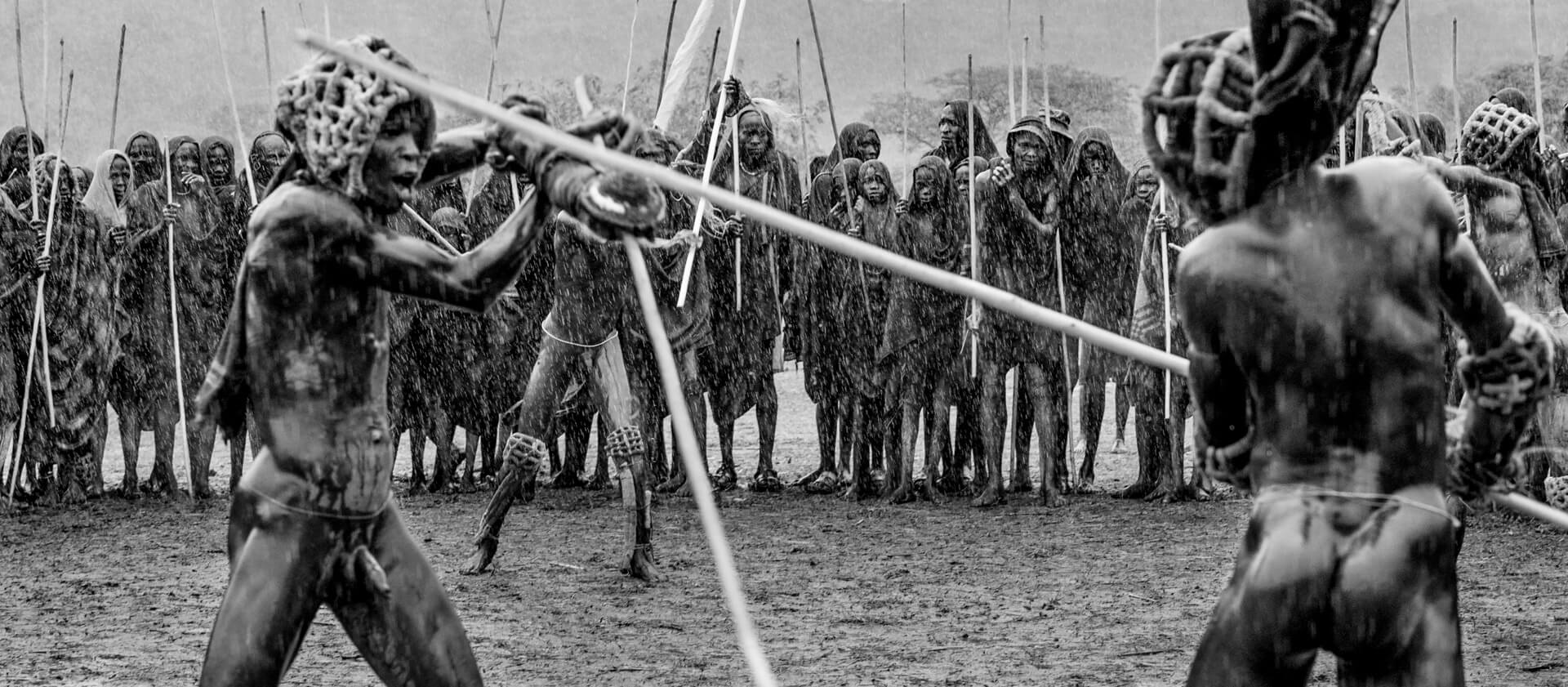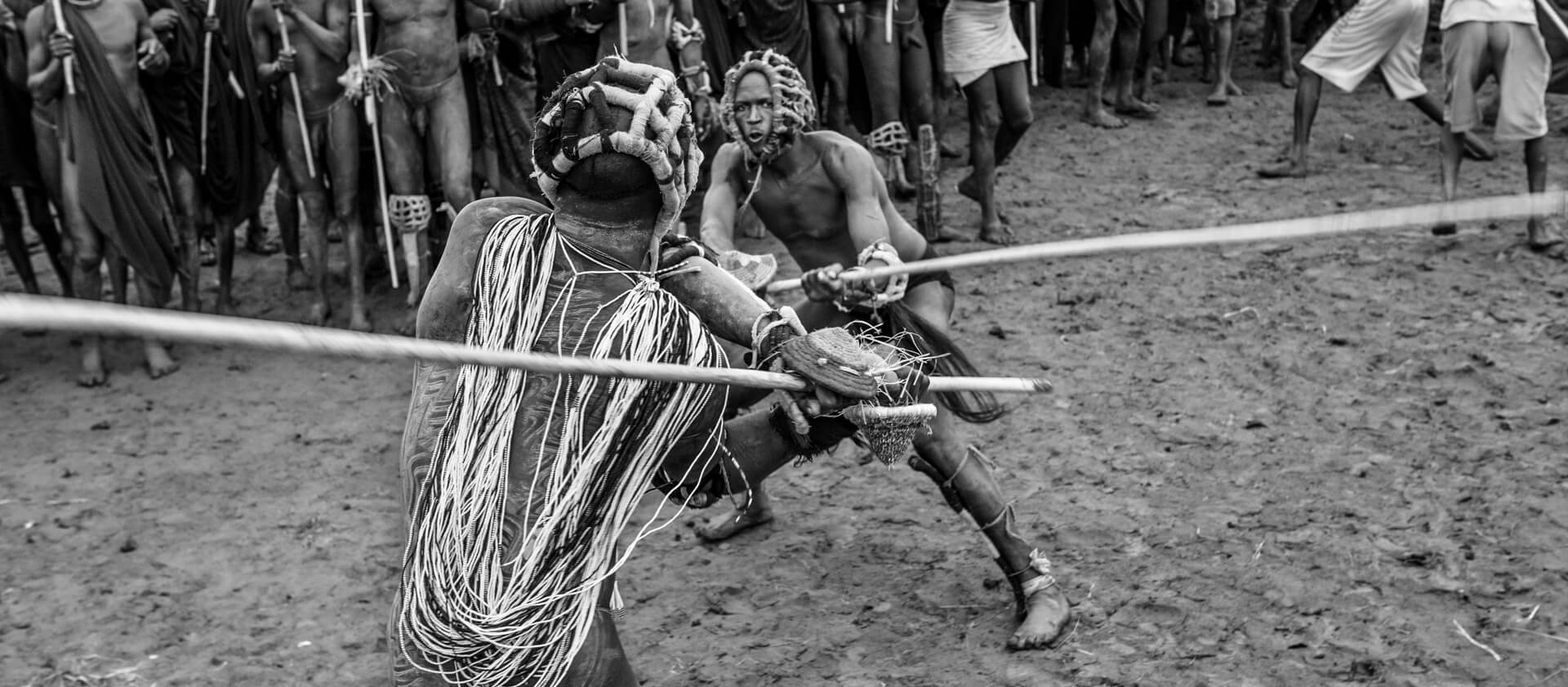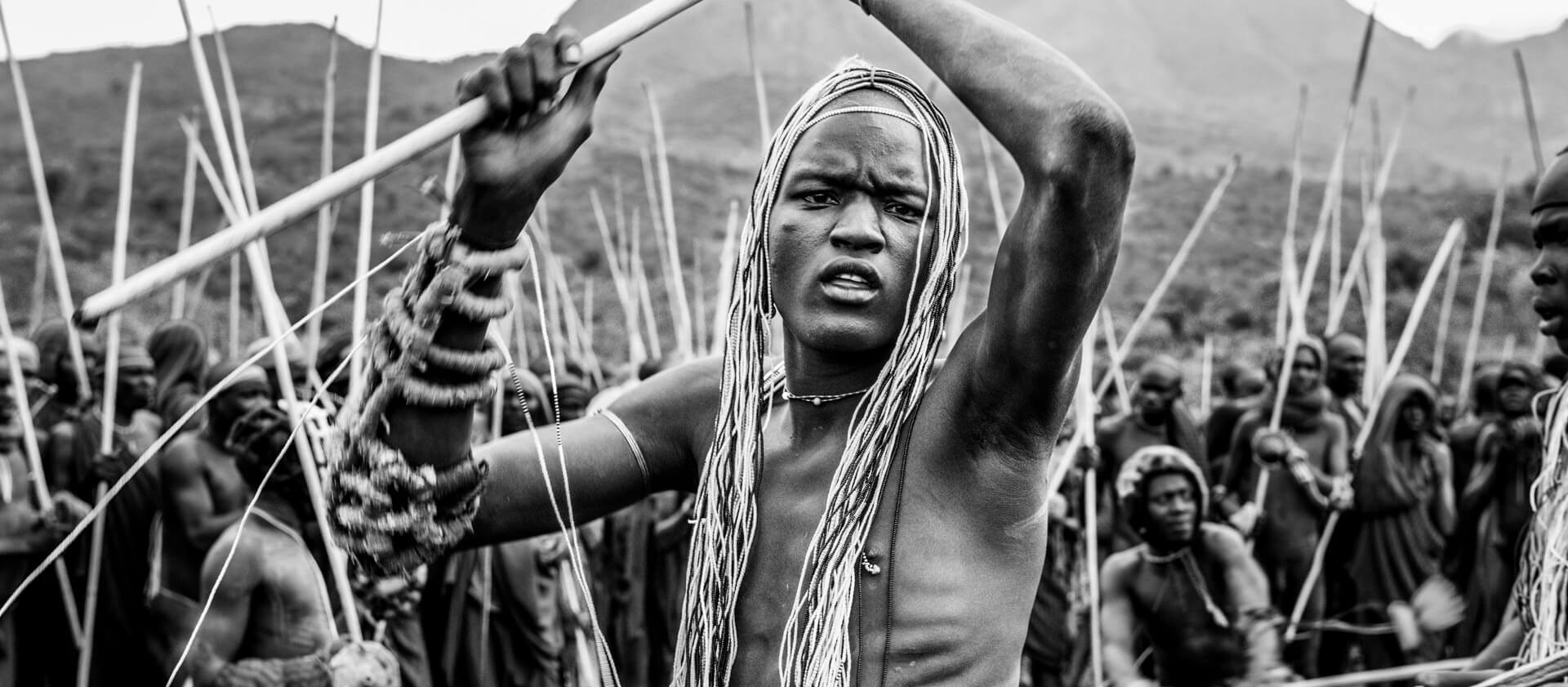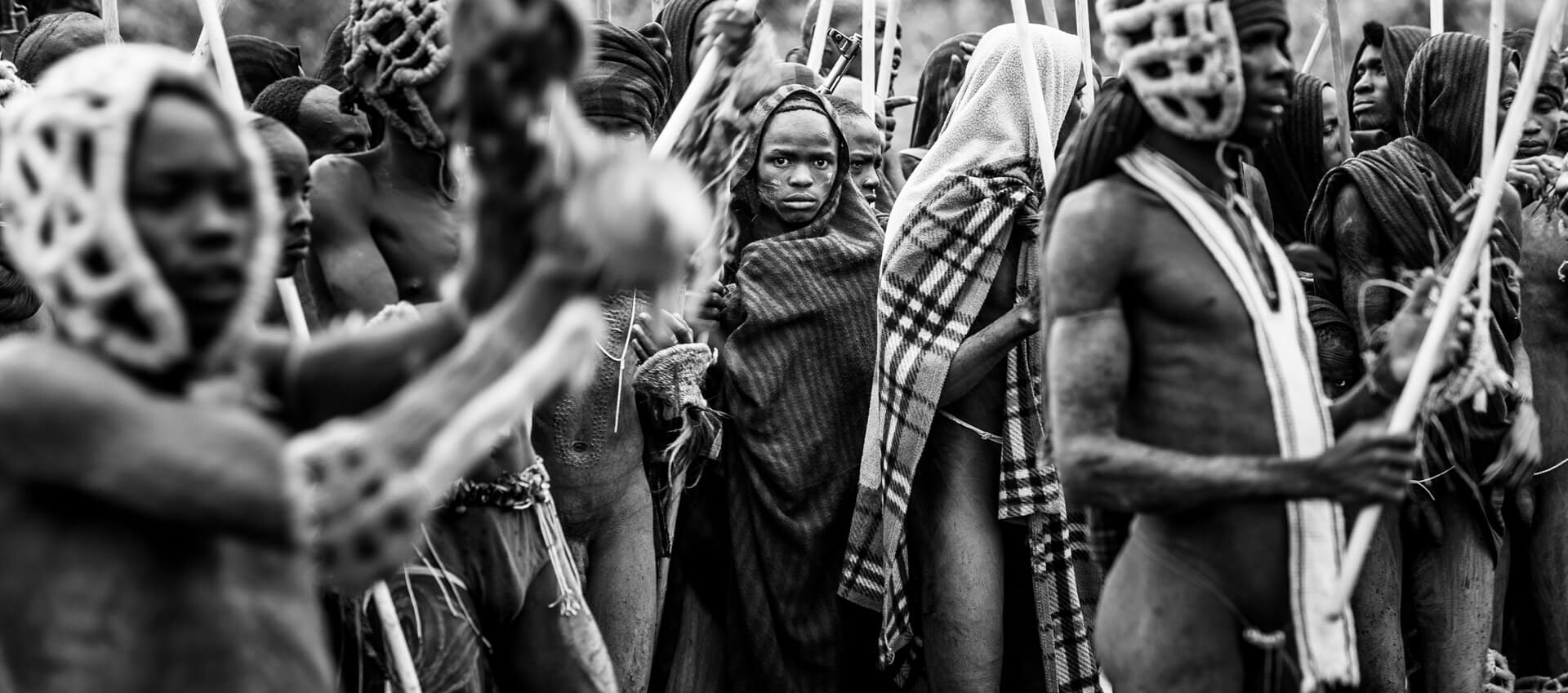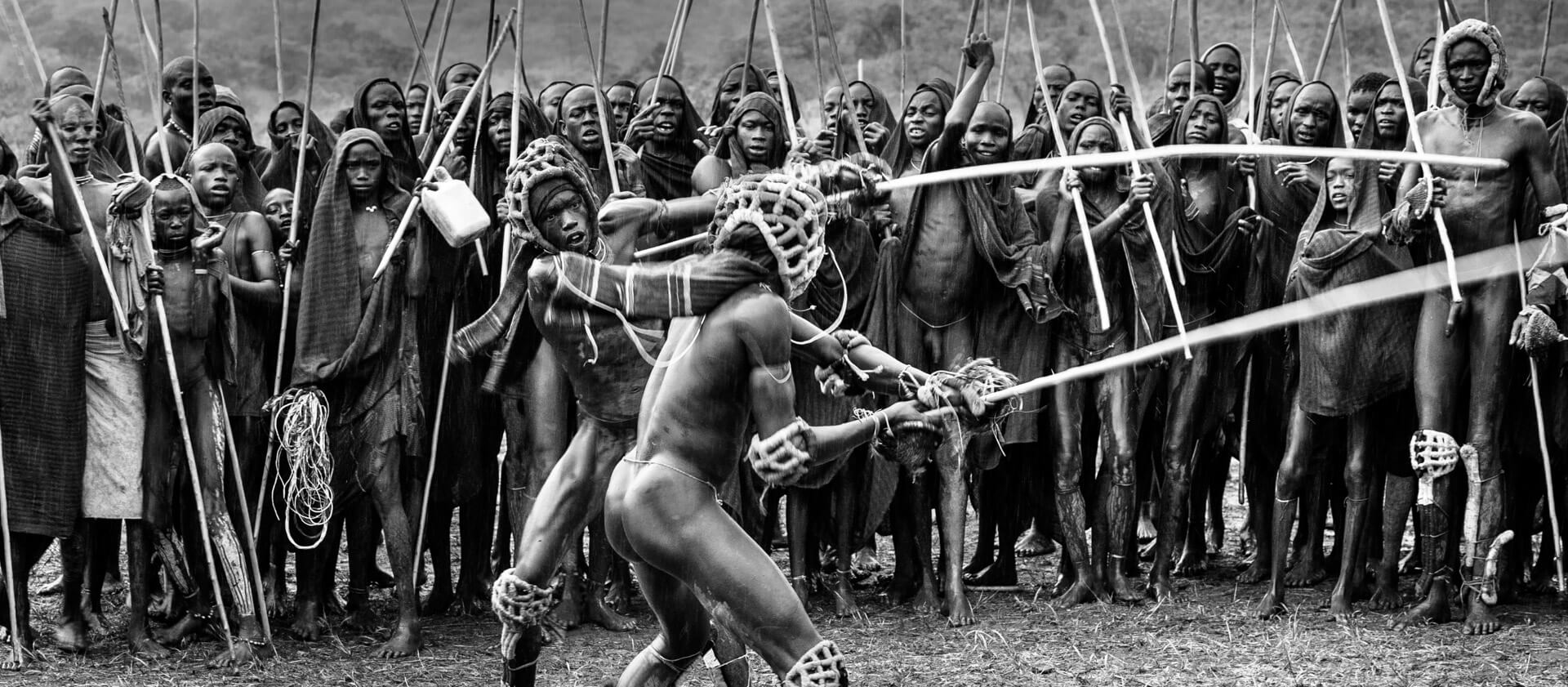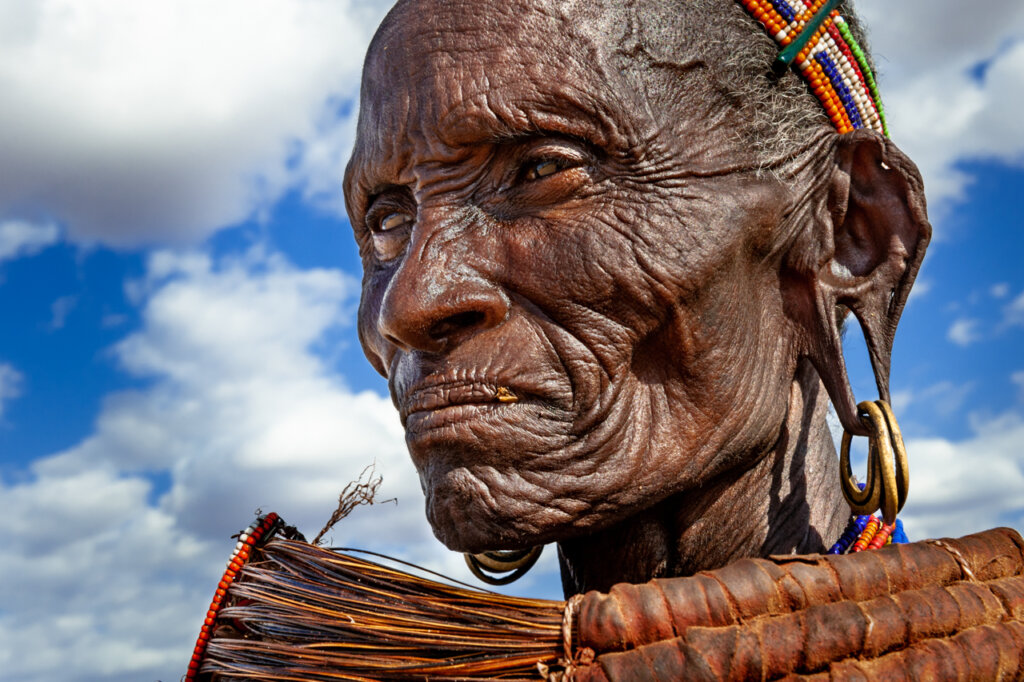Suri Donga Stick Fighting : Omo Valley, Ethiopia
When National Geographic calls the Omo Valley the last frontier in Africa, I think the very heart of that frontier beats among the Suri people in the Upper Omo. Remote and rugged, this part of southwestern Ethiopia feels untouched by time. Here, the Suri maintain large herds of cattle, which they keep in camps scattered throughout the mountains and valleys, lush, green landscapes rich with grasses. These pastoralists migrate with the seasons, moving their animals through the terrain, living in harmony with the rhythm of the land.
Among the Suri, cattle are wealth, status, and survival. But equally central to their cultural identity is the Donga, a form of ritual stick fighting practiced by young men. Often these fights are grudge matches over women or perceived insults and can be quite intense sometimes resulting in death. I had the rare opportunity to witness several of these events, and they were among the fiercest and most dramatic contests I’ve ever seen.
The Donga is no casual skirmish. It is a battle, filled with meaning and consequence. Young Suri men, often painted in white patterns of ash and clay, step into a clearing armed with long, flexible wooden sticks. They are lean, strong, and fearless. The fights are one-on-one, but they’re fast and furious, with whiplike strikes aimed at legs, ribs, and shoulders. A well-placed blow can drop a fighter instantly. The risk of serious injury is real, but so is the reward: honor, admiration, sometimes even the attention of a partner.
What surprised me most was the crowd. Despite being a foreigner and clearly an outsider, I was almost entirely ignored. The people were so focused on the fighting, so immersed in the energy and emotion of the event, that my presence didn’t seem to matter. I was allowed to observe, photograph, and absorb the experience without intrusion or resistance. That quiet acceptance made the experience even more powerful. It felt authentic, unfiltered and ok as long as I didn’t accidentally get to close. Once a swinging stick knocked the lens shade off…close enough, I got the shot!
These battles are part of a rite of passage, a way to demonstrate courage, agility, and strength. In a society without modern metrics of achievement, the Donga is a stage where young men prove their worth. The entire community gathers to watch, to cheer, to celebrate. And the pride, both personal and communal, is palpable.
In this isolated, resilient corner of Africa, the Donga is more than a fight. It is a living link to culture, to identity, to a way of life that still exists.
